
Film Review: ‘My Happy Family’
An interesting sociological perspective on a changing patriarchal society.
By Alissa Simon
Alissa Simon
Film Critic
- ‘Confessions of a Good Samaritan’ Review: Penny Lane Delivers a Documentary Essay on Altruism and Its Discontents 1 month ago
- ‘Bad Shabbos’ Review: An Interfaith Couple Survive a Sabbath Meal They Will Never Forget 2 months ago
- ‘Longing’ Review: Richard Gere Flounders as a Businessman Who Discovers He Fathered a Son 19 Years Ago 2 months ago

“My Happy Family,” the somewhat attenuated second feature from helmers Nana Ekvtimishvili and Simon Gross (a real-life couple credited here as “Nana and Simon”), continues their exploration of Georgia’s distaff side with a low-key, slice-of-life look at a middle-aged woman who leaves her husband. With its vociferously arguing family members, multiple dinner table scenes, and camerawork by DP Tudor Vladimir Panduru (who also shot Cristian Mungiu’s “Graduation”), it feels much closer to recent Romanian cinema than to such similarly-themed titles as Paul Mazursky’s “An Unmarried Woman.” Although the energy and freshness of the directors’ acclaimed debut “In Bloom” are not so much in evidence here, “Family” does offer an interesting perspective on a changing patriarchal society, which should serve this sociological drama well on the fest circuit and in niche European play.
When we first meet her, Manana (theater thesp and vocalist Ia Shugliashvili), a 52-year-old high school literature teacher, is checking out a tiny apartment for rent. It soon becomes obvious why she longs for a room of her own: The multi-generational living common to conventional Georgian families is oppressing her and breaking her spirit. Production designer Kote Japharidze and lenser Panduru emphasize the claustrophobia she feels with crowded interiors, low ceilings, and tightly framed shots.
Related Stories
With redbox’s demise, the dvd rental business bottoms out, it's official: ventana sur 2024 relocates to montevideo, uruguay.
Manana shares a cramped, noisy Tbilisi flat with her aged parents; the overly-critical, nagging Lamara (Berta Khapava) and ailing Otar (Goven Cheishvili); her importuning hubby Soso (international star Merab Ninidze, downplaying his looks and charisma); computer-addicted son Lasha (Giorgi Tabidze); pretty, pregnancy-obsessed daughter Nino (Tsisia Qumsashvili); and Nino’s cheating partner, Vakho (Giorgi Khurtsilava). Not only does she lack space, forced to store her clothes in an occupied spare bedroom, but she has virtually no free time. Her son wants dinner made for him, and her husband insists that she visit with his friends, who drunkenly linger, making music much past their welcome.
Popular on Variety
When Manana learns that one of her teenage students has already married and divorced, simply for not getting along with her new husband, it sparks her resolution. The callow youngster’s explanation, “When you say no, you have to mean it,” stands in stark contrast with Manana’s inability to get her family to respect the lines she wants to draw.
Though young Georgians may be marrying young and shedding spouses rather quickly today, it’s another thing altogether for a woman of Manana’s generation. For her, divorce represents a major break from tradition. Rather than trying to understand her desire to live alone, her parents and overbearing older brother Rezo (Dimitri Oragvelidze) worry about what other people will think of their family’s reputation. A council of elderly relatives are equally judgmental; it’s beyond their understanding, as revealed when one comments, “But he doesn’t beat you and isn’t a drunk,” to Soso.
Once on her own, Manana is shown enjoying the small satisfactions of single life: listening to music, reading, noodling on her guitar, changing her clothes without disturbing others, shopping at leisure, nurturing tomato plants on her deck, and eating cake instead of an entire meal without attracting any criticism. She builds her new life slowly, fighting to resist attempts by needy family members to draw her into their time-sucking circle again. But when she attends a school reunion and proudly tells her female friends about her new status, they share some news that comes as a shocking revelation to Manana, and almost shatters her newfound peace of mind.
Providing certain vivid detail but rather lacking in vitality, Ekvtimishvili’s screenplay is stronger on sociology than drama. While she notably contrasts the relationship and lives of three generations of Georgian women, she and editor Stefan Stabenow allow dramatic events such as Manana’s actual divorce and the breakup of Nino and Vakho’s relationship to take place off-screen, robbing the overall action of the dynamism of climatic situations. Instead, scenes of parties and family get-togethers play at extended length, merging into a certain sameness distinguished only by the traditional Georgian songs performed, while the dialogue during the family argument scenes is so repetitive that they feel like rehearsal exercises.
Even though audiences can’t help but feel for Manana and celebrate her courage and resolve, Shugliashvili’s stoop-shouldered, furrowed-brow performance doesn’t completely bring them into the nuances of what she is thinking and feeling. In comparison to Manana, the other characters have so little screen time that they mainly exist as foils, including “In Bloom’s” hot-blooded Natia (Mariam Bokeria), who appears in an amusing cameo as Lasha’s sweet but slightly vulgar fiancée.
Reviewed online, Jan. 18, 2017. (In Sundance, Berlin film festivals.) Running time: 120 MIN. (Original title: ‘Chemi bedinieri ojakhi’)
- Production: (Georgia-Germany-France) An Augenschein Filmproduktion production, in co-production with Polare Film, Arizona Prods., ZDF - Das kleine Fernsehspiel Film. (International sales: Memento Films, Paris.) Producers: Jonas Katzenstein, Maximilian Leo, Simon Gross. Co-producers: Nana Ekvtimishvili, Guillaume De Seille.
- Crew: Directors: Nana Ekvtimishvili, Simon Gross. Screenplay: Ekvtimishvili. Camera (color, HD): Tudor Vladimir Panduru. Editor: Stefan Stabenow.
- With: Ia Shugliashvili, Merab Ninidze, Berta Khapava, Tsisia Qumsashvili, Giorgi Khurtsilava, Giorgi Tabidze, Goven Cheishvili, Dimitri Oragvelidze, Mariam Bokeria. (Georgian dialogue)
More from Variety
‘dandelion’ review: kiki layne and thomas doherty find fleeting harmony in ethereal musical romance, licensing your movie & tv content for ai training: can you should you, olympics screenings in movie theaters highlight exhibitors’ need for alternative content, more from our brands, ye and ty dolla $ign’s ‘vultures 2’: it’s time to unsubscribe from the kanye disaster, this $23 million home in jackson, wyoming, frames the teton mountain range, man united could sell stadium naming rights to snapdragon, the best loofahs and body scrubbers, according to dermatologists, rings of power stars tease ‘mayhem’ now that the titular rings are forged — plus, what’s up with númenor.
- Become a Critical Movie Critic
- Movie Review Archives

Movie Review: My Happy Family (2017)
- Madison Miller
- Movie Reviews
- No responses
- --> February 22, 2018
Following the release of “ Lady Bird ,” Anne Helen Petersen wrote a moving essay on the supporting roles of mothers in relation to their daughters’ central stories entitled “Moms Are Main Characters Too.” Petersen writes, “But something you learn after high school is that, without the momentousness of ‘firsts’ . . . and societally ordained milestones . . ., growth occurs in much smaller, much more incremental and counter-intuitive ways. And most of these moments are invisible to everyone save your deepest self.” While drawing a comparison between Greta Gerwig’s Sacramento-set, semi-autobiographical masterpiece (one of my favorites of the year) may seem strange, I couldn’t help being reminded of that bond (and cinema’s uncanny knack for drawing curious connections) as I encountered the Georgian film My Happy Family .
Manana (Ia Shugliashvili, “Sleeping Lessons”) — the motherly main character of this story — is a wife and mother of two, although not the matriarch of her happy family. That role belongs to her own mother, who is the head of the household occupied by Manana’s entire family, including mother, father, husband Soso (Merab Ninidze, “ Bridge of Spies ”), son, daughter, and son-in-law. The house is cramped and crowded. There is a large wardrobe in the bedroom in which everyone keeps their clothes — however inconvenient for that night’s sleeping guests — because it is too heavy to move. For the past 50 or so years, Manana has found herself in a similar position — too weighed down to move from her family home. My Happy Family represents her coming-of-age tale during an age so often overlooked by and invisible to those in the orbit of her world.
Directors Nana Ekvtimishvili and Simon Groß with cinematographer Tudor Vladimir Panduru strike this balance in the way Manana is filmed. Manana’s invisibility to her family is captured in the empty seat at the dinner table during a noisy affair where everyone begins eating without her despite claims that they were waiting for her. Her presence is more often than not a nuisance to her daughter (noisily rifling through the shared wardrobe in early morning hours) and mother (not knowing the difference between herbs when shopping). When not being misunderstood or criticized by her family, Manana goes unseen and unnoticed by those around her, but Panduru’s camera always finds her. She is central and focused in frame, sometimes to the detriment of her background surroundings and supporting characters, who are shot half out of frame or removed entirely. After a life lived on the margins, Manana is a main character now, too.
In her professional life, Manana stands front and center as she lectures her class on The Martyrdom of the Holy Queen Shushanik — the earliest surviving extant piece of Georgian literature. The manuscript describes the martyrdom of Saint Shushanik, an Armenian noblewoman, at the hand of her spouse, high prince Varsken. She was killed by him after refusing to submit to his order to abandon her Christian faith. Whether the text can be read as a simple family drama or goes beyond those restrictive bounds since the main conflict is religiously motivated is a question up for discussion in her classroom. Beyond that, Manana’s conflicts seem to qualify as family drama, though, of course, there is nothing simple about it.
Just as Manana idles between the roles of mother and daughter, she also awkwardly straddles the line between teacher and student. This dichotomy is observed in her interactions with two young women who also happen to be struggling with marital discontent. Conversations about life and love carried out with her young, female student and her slightly older daughter are clouded by Manana’s judgment and misjudgments. On the one hand, she aims to protect her daughter by the projecting of her own experience. On the other, she sees herself in the resolute student who unwittingly serves as an impetus for Manana’s own life change. It is through these cross-generational exchanges that Tolstoy’s familiar familial analogy at long last gains credence. Every unhappy family really is unhappy in its own way.
Embarking on her journey of sense of self rediscovery, Manana begins experiencing these so-called milestones, these smaller incremental signs of growth. She moves out of the shared apartment into one of her own. She learns guitar and how to cook. She reconnects with old friends and schoolmates. She transfers tomato seedlings to individual pots. They, as well as she, flourish on their own. In perhaps my favorite scene, the warm Georgian wind rustles the trees outside Manana’s double balconies as she plays loud music (Mozart’s thrilling “Rondo Alla Turca”) and indulges in a slice of cake before dinner (an act deliberately chosen for its defiance of her mother’s prior nitpicking). We are treated to the small but transcendent joy of a slice of cake, enjoyed alone, when the light is just right and the world seems to align. Again calling to mind an exchange between Lady Bird and her mother, Marion: “I want you to be the very best version of yourself that you can be.” “What if this is the best version?” By the final frame of My Happy Family , I like to think Manana has found hers.
Throughout My Happy Family , music is played and performed by the characters. The selections are beautifully instrumental in echoing the emotional tenor of the film, be it joyous or heartbroken. One such celebration comes when Manana and Soso’s son announces his engagement. Their soon-to-be daughter-in-law moves into the shared apartment. Their daughter gives the fiancée a tour and the audience a further sense of people both joining and leaving a family. During an emotional reckoning with her husband, Soso remarks that he thought his home was with Manana and their children — an ideological concept more than a place to live. This entire time we’ve been concerned with her growth and autonomy and, until now, failed to realize that he’s never had the chance to strike out on his own either. Having each migrated from one family home to another, they’ve never lived alone, together. Maybe now is their chance for happiness.
Tagged: Georgia , journey , marriage , mother , woman
Madison Miller was named after "Splash." Her love of film (and mermaids) inevitably followed. She keenly observes the inflight entertainment selections of her fellow travelers, and judges them accordingly. More of her musings can be found at www.reviewfromthetop.com.
Movie Review: Berlin, I Love You (2019) Movie Review: Under the Eiffel Tower (2018) Movie Review: State Like Sleep (2018) Movie Review: All About Nina (2018) Movie Review: Support the Girls (2018) Movie Review: We the Animals (2018) Movie Review: Most Likely to Murder (2018)
'Movie Review: My Happy Family (2017)' has no comments
Privacy Policy | About Us
| Log in
Common Sense Media
Movie & TV reviews for parents
- For Parents
- For Educators
- Our Work and Impact
Or browse by category:
- Get the app
- Movie Reviews
- Best Movie Lists
- Best Movies on Netflix, Disney+, and More
Common Sense Selections for Movies

50 Modern Movies All Kids Should Watch Before They're 12

- Best TV Lists
- Best TV Shows on Netflix, Disney+, and More
- Common Sense Selections for TV
- Video Reviews of TV Shows

Best Kids' Shows on Disney+

Best Kids' TV Shows on Netflix
- Book Reviews
- Best Book Lists
- Common Sense Selections for Books

8 Tips for Getting Kids Hooked on Books

50 Books All Kids Should Read Before They're 12
- Game Reviews
- Best Game Lists
Common Sense Selections for Games
- Video Reviews of Games

Nintendo Switch Games for Family Fun

- Podcast Reviews
- Best Podcast Lists
Common Sense Selections for Podcasts

Parents' Guide to Podcasts

- App Reviews
- Best App Lists

Social Networking for Teens

Gun-Free Action Game Apps

Reviews for AI Apps and Tools
- YouTube Channel Reviews
- YouTube Kids Channels by Topic

Parents' Ultimate Guide to YouTube Kids

YouTube Kids Channels for Gamers
- Preschoolers (2-4)
- Little Kids (5-7)
- Big Kids (8-9)
- Pre-Teens (10-12)
- Teens (13+)
- Screen Time
- Social Media
- Online Safety
- Identity and Community

How to Prepare Your Kids for School After a Summer of Screen Time
- Family Tech Planners
- Digital Skills
- All Articles
- Latino Culture
- Black Voices
- Asian Stories
- Native Narratives
- LGBTQ+ Pride
- Best of Diverse Representation List

Multicultural Books

YouTube Channels with Diverse Representations

Podcasts with Diverse Characters and Stories
My happy family, common sense media reviewers.

Subtitled, mature family drama has cursing, sex.

A Lot or a Little?
What you will—and won't—find in this movie.
Importance of asserting individualism and demandin
Central character takes long-needed action to prot
Kissing. References to infidelity, and a brief, se
"Bastard," "s--t."
Wine in social settings. A bit of drunkenness at a
Parents need to know that My Happy Family is a subtitled drama about a multigenerational family living together in Tbilisi, a city in the Eastern European country of Georgia. Such family situations aren't unusual there. At the age of 52, Manana, wife-daughter-mother, at last confronts the impossibility of…
Positive Messages
Importance of asserting individualism and demanding respect. Commitment to family must be balanced with one's own desire for autonomy. Values promoted: integrity, compassion, courage, communication.
Positive Role Models
Central character takes long-needed action to protect herself and find joy in life. She becomes self-assured, decisive, and on the verge of finding balance in her life. Several female characters take steps to stand up for themselves. A stereotypical overbearing mother is a constant irritant.
Sex, Romance & Nudity
Kissing. References to infidelity, and a brief, semi-obscured conversation about anal sex.
Did you know you can flag iffy content? Adjust limits for Sex, Romance & Nudity in your kid's entertainment guide.
Did you know you can flag iffy content? Adjust limits for Language in your kid's entertainment guide.
Drinking, Drugs & Smoking
Wine in social settings. A bit of drunkenness at an adult class reunion. It's implied that a leading character drinks too much. Smoking.
Did you know you can flag iffy content? Adjust limits for Drinking, Drugs & Smoking in your kid's entertainment guide.
Parents Need to Know
Parents need to know that My Happy Family is a subtitled drama about a multigenerational family living together in Tbilisi, a city in the Eastern European country of Georgia. Such family situations aren't unusual there. At the age of 52, Manana, wife-daughter-mother, at last confronts the impossibility of her situation: overbearing parent, ineffectual husband, young adult children who have not fully "launched." Her decision to leave and live on her own throws the family into turmoil. Mature themes (i.e., infidelity, divorce and separation, controlling relationships) are explored. Expect a few curses ("bastard," "s--t"), some drinking and smoking, and conversations about sex. Messages about standing up for oneself, trying to live a meaningful life, and changing unhealthy family dynamics are integrated into the story. This movie is directed at grown-up audiences, not kids. To stay in the loop on more movies like this, you can sign up for weekly Family Movie Night emails .
Where to Watch
Videos and photos.

Community Reviews
- Parents say (1)
Based on 1 parent review
Superb film
What's the story.
There's a big, loud, messy family at the heart of MY HAPPY FAMILY, and not necessarily a happy one. With three generations living together in close quarters, everyone's personality, quirks, and emotions impact the others. Manana (Ia Shugliashvili), a high school teacher, is sandwiched between her parents and her children, with her husband passively along for the ride. Manana's needs and desires don't mean much. When her birthday comes around and she asks that it be a quiet time, she's ignored; assorted relatives and friends fill the already burgeoning house. After that event, and a poignant moment alone with one of her students, Manana is moved to take drastic action. When she announces that she's leaving the house and has found an apartment of her own, the rest of the family is stunned. When Manana refuses to discuss her decision, they become upset. When she moves out, they want her back. Is it because they need her? Or is it because they have lost control? As Manana navigates her new life, with time and space for herself, she quickly learns, if she didn't already know, that her role as counsel and caregiver hasn't ended. And she faces events and revelations that profoundly test her determination.
Is It Any Good?
A remarkable performance from Ia Shugliashvili, an inventive take on a familiar premise, and the filmmakers' choice to let their camera hold fast to moments that matter make this movie memorable. It's a solid production all around. There's an artistry to the film's execution, especially performance, music, writing, cinematography. Both characters and the settings feel vibrant and authentic.
However, perhaps the filmmakers made a misstep at the film's end. Though they must believe that the closing scene, though enigmatic, will be satisfying, at least to a degree, it isn't. Despite that minor blemish, all that has gone before makes My Happy Family stirring fare for mature audiences. And it's good to see such a moving, relatable story set in a country not often seen in films that reach America.
Talk to Your Kids About ...
Families can talk about the household in My Happy Family . How does this family compare to families you know? How do movies help us understand and relate to people from other cultures and places?
Unlike many films, this one spends time with its characters, especially Manana, during quiet, alone moments. How does this technique help the viewer engage with the people on-screen? For example, how were your perceptions of Manana heightened during the scenes in which she was alone in her new apartment?
What was the purpose of the very first scene? How did it set up its audience for what they were about to see? When do you think Manana made her important decision?
How did Manana exhibit important character strengths and life skills , such as courage , self-control , perseverance , and empathy ?
Movie Details
- On DVD or streaming : December 1, 2017
- Cast : Ia Shugliashvili , Merab Ninidze , Berta Khapava
- Directors : Nana Ekvtimili , Simon Gross
- Studio : Netflix
- Genre : Drama
- Topics : Brothers and Sisters
- Character Strengths : Communication , Courage
- Run time : 119 minutes
- MPAA rating : NR
- Last updated : February 26, 2022
Did we miss something on diversity?
Research shows a connection between kids' healthy self-esteem and positive portrayals in media. That's why we've added a new "Diverse Representations" section to our reviews that will be rolling out on an ongoing basis. You can help us help kids by suggesting a diversity update.
Suggest an Update
Our editors recommend.

Another Year

Hannah and Her Sisters

Last Weekend

Hope Springs
Drama tv for teens, drama movies that tug at the heartstrings, related topics.
- Communication
- Brothers and Sisters
Want suggestions based on your streaming services? Get personalized recommendations
Common Sense Media's unbiased ratings are created by expert reviewers and aren't influenced by the product's creators or by any of our funders, affiliates, or partners.
- Cast & crew
- User reviews
My Happy Family

A woman separates from her family after 52 years in a multi-generational Georgian household to begin her own adventure. To the shock of her relatives, she leaves everything behind to start a... Read all A woman separates from her family after 52 years in a multi-generational Georgian household to begin her own adventure. To the shock of her relatives, she leaves everything behind to start again. A woman separates from her family after 52 years in a multi-generational Georgian household to begin her own adventure. To the shock of her relatives, she leaves everything behind to start again.
- Nana Ekvtimishvili
- Ia Shugliashvili
- Merab Ninidze
- Berta Khapava
- 28 User reviews
- 38 Critic reviews
- 86 Metascore
- 13 wins & 9 nominations

Top cast 89

- (as Tsisia Qumsishvili)

- Tatia Chigogidze

- Cousin Dato
- Cousin Ketino
- Gas Company Woman
- Apartment Owner
- Bela - Rezo's Wife
- All cast & crew
- Production, box office & more at IMDbPro
More like this

Did you know
- Trivia The song Manana plays at her class reunion is written by the actress' mother, famous Georgian singer Inola Gurgulia. She passed away when Ia was only ten.
Technical specs
- Runtime 2 hours
Related news
Contribute to this page.

- See more gaps
- Learn more about contributing
More to explore
Recently viewed.

My Happy Family (2017)
The Very Best
watch later
not interested / hide
Play Trailer
subscription
Read our dedicated guide on how to watch My Happy Family (2017)
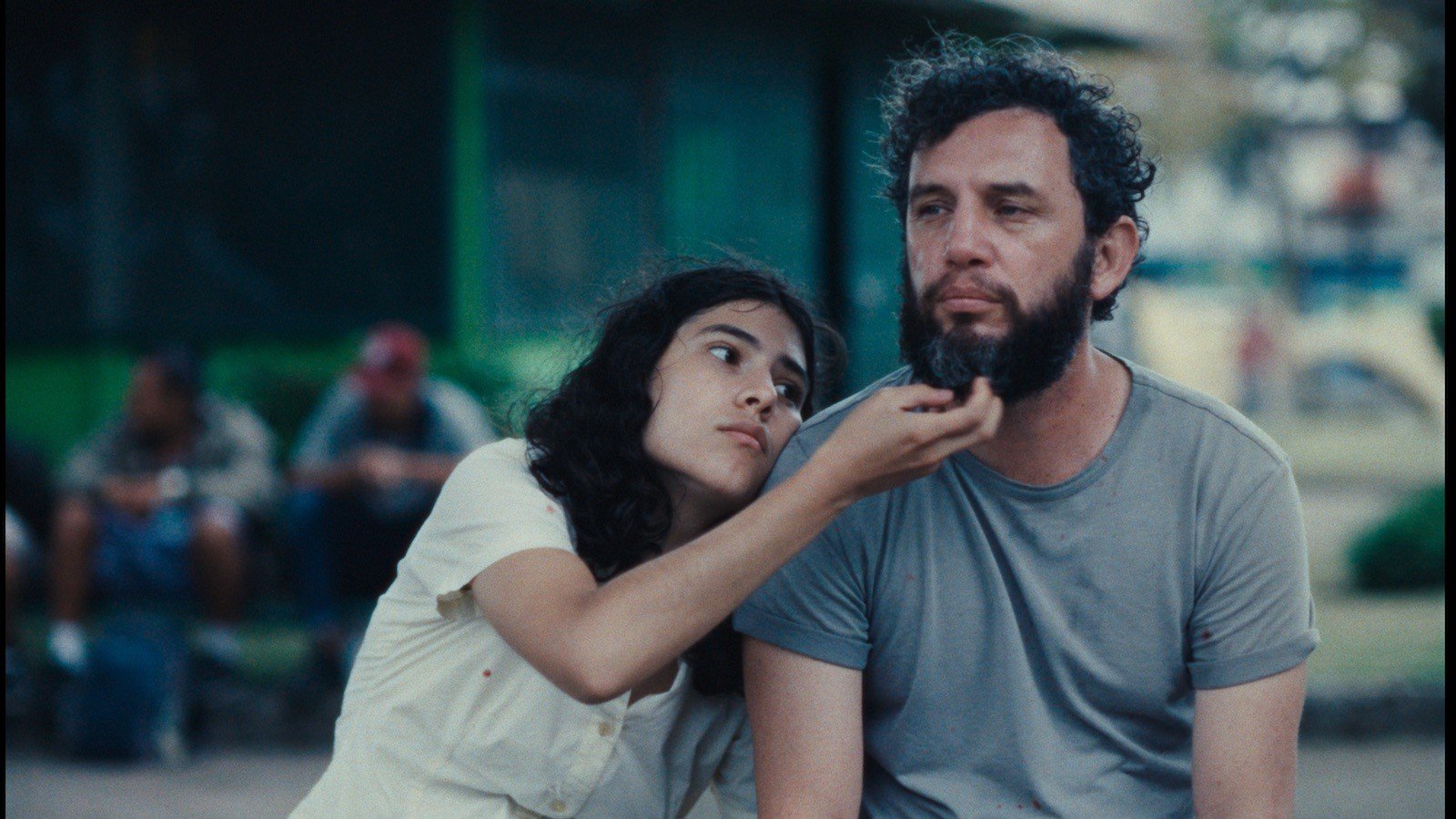
100 Best Films That Center Womens’ Experiences
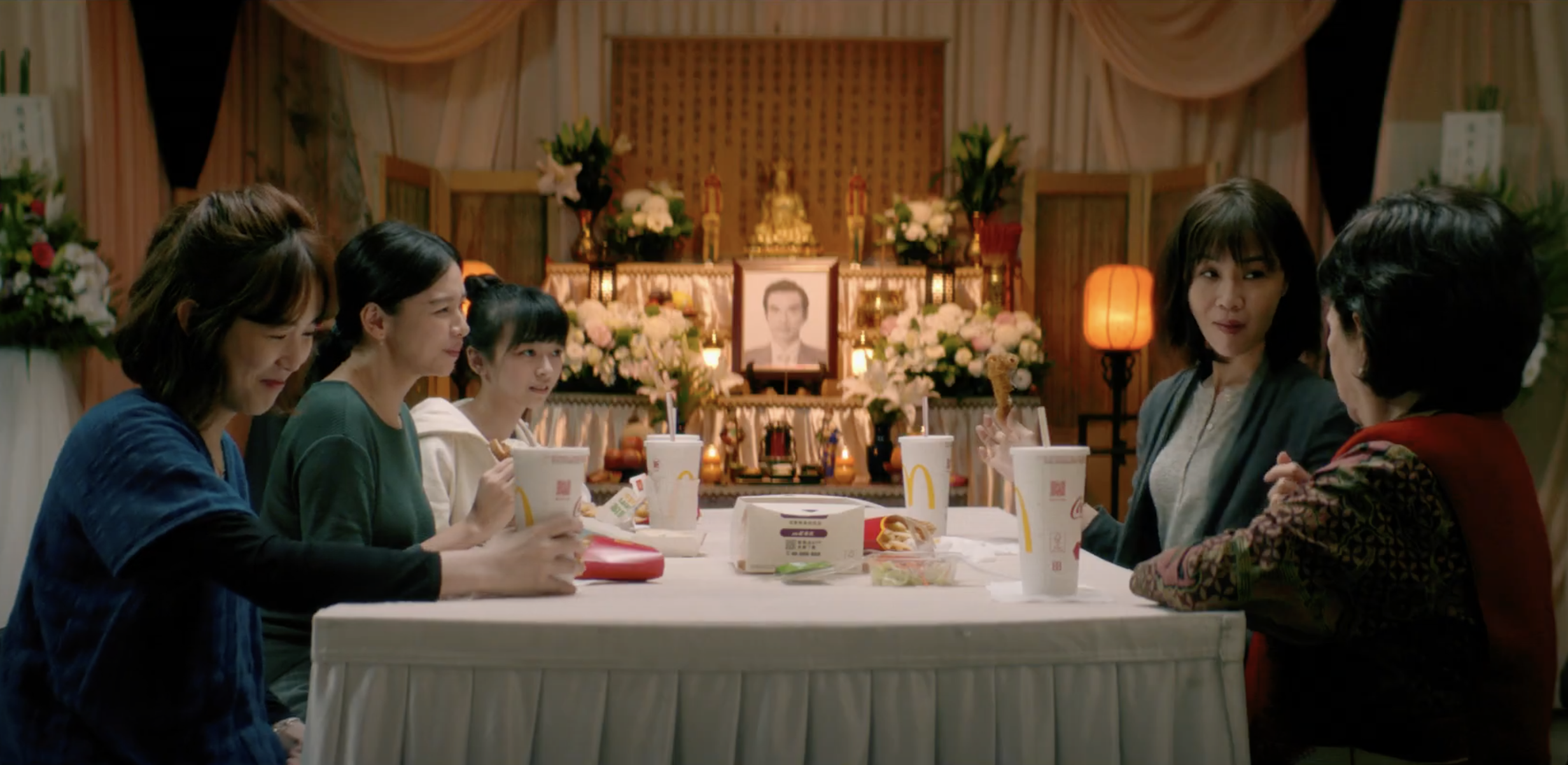
50 Best Foreign-Language Movies on Netflix UK

10 Best Live TV Services That Offer Free Trial

30 Best Cable Alternatives on Roku for Cord-Cutting
Amazon Prime Video Review 2024
Hayu vs. Netflix: Which Service Is Right for You?
Bilal Zouheir
What it's about.
This movie is a dramatic masterpiece and a tribute to loving middle-aged women everywhere. It is unparalleled in the way it portrays its characters and the subtlety with which it tells their stories. The events are centered around a 52-year-old Georgian woman who decides to leave her family home and live alone without much of a notice. She trades chaos and domestic disputes for solitude, and the prospect of sad old age for an opportunity to build a new life for herself. In other words, she trades being the secondary character to her mother, husband, and children, to being the hero of her own story. A genuine and beautiful film. If like me you grew up with a mother who sacrificed everything for you, this will hit very close to home.
Add a comment
More like this in, women stories, character-driven, discussion-sparking.
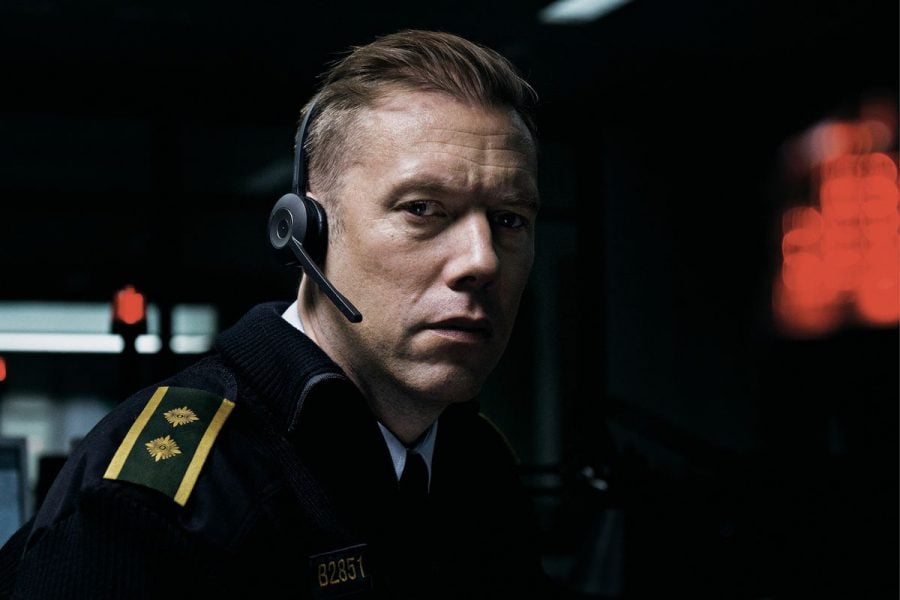
The Guilty (2018)
A minimalist, razor-sharp thriller that will have you gasping for air.
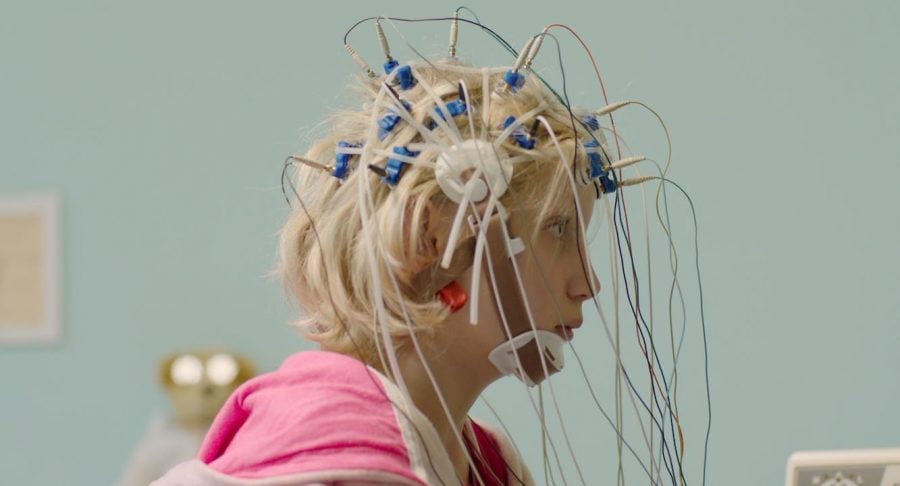
System Crasher (2019)
A tale of trauma and one of the most talked about movies on Netflix in 2020.
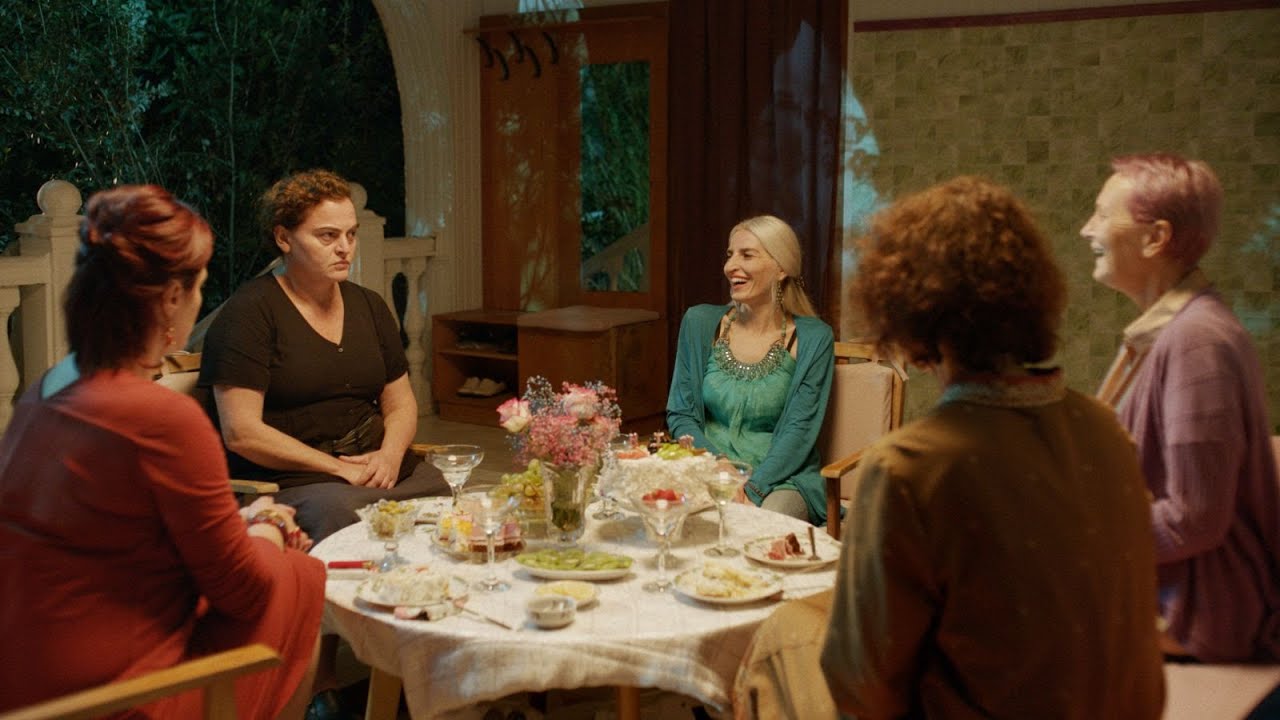
Blackbird Blackbird Blackberry (2023)
A meditative character study of an independent middle-aged woman
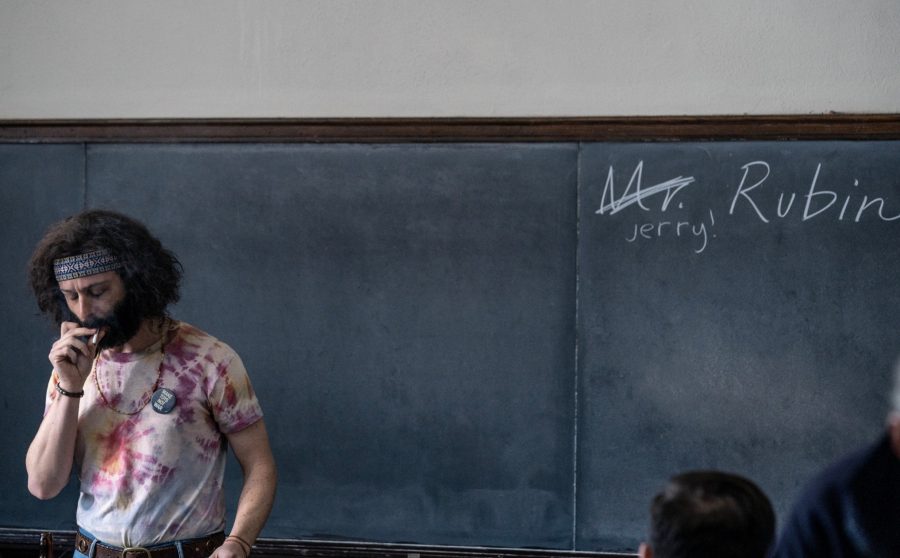
The Trial of the Chicago 7 (2020)
A star-studded and riveting legal drama with a blockbuster feel.
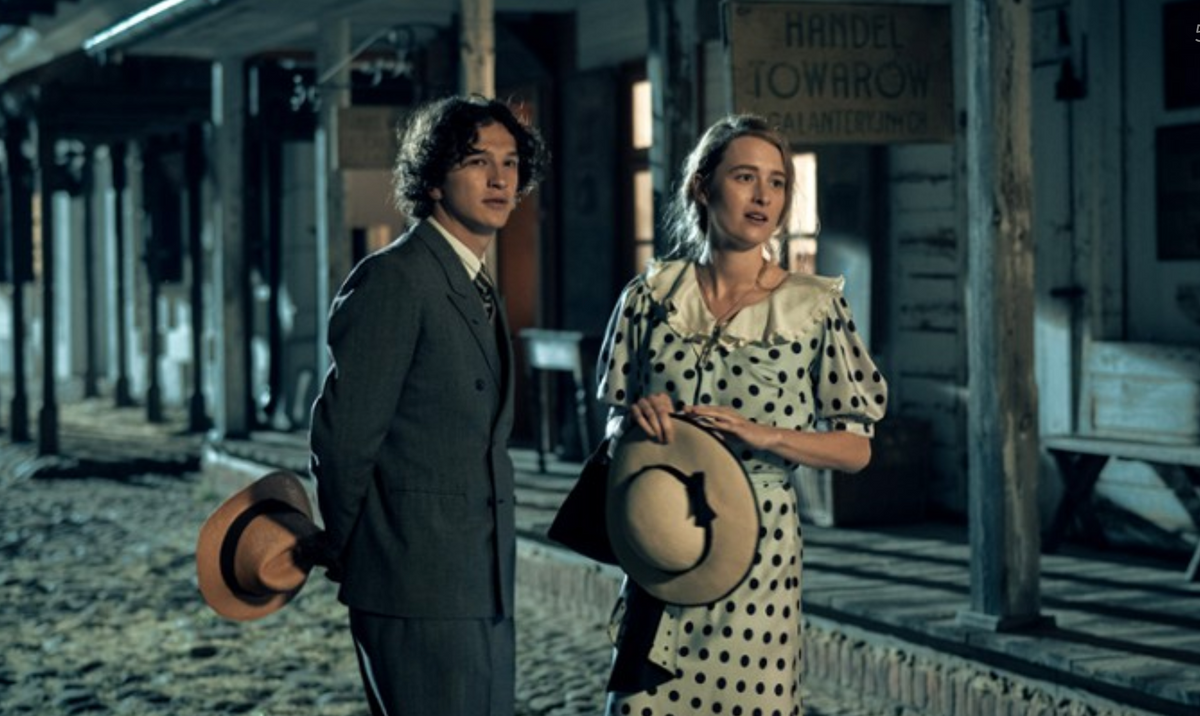
Forgotten Love (2023)
The stunning third take of the classic Polish pre-war melodrama

Hail Satan? (2019)
Forget everything you think you know about the Satanic Temple
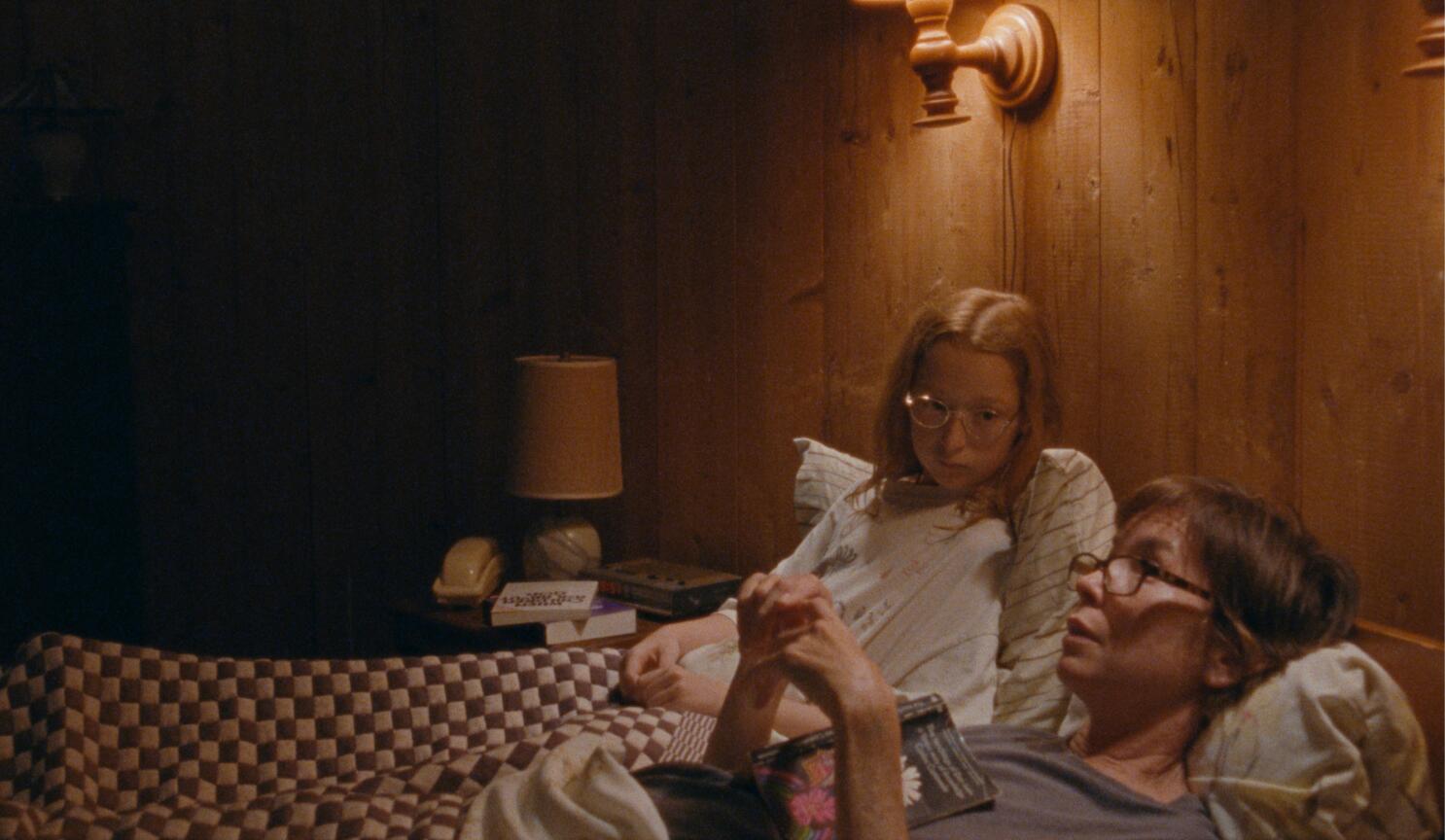
Janet Planet (2024)
A slow but rewarding examination of a mother and daughter bond

A Silent Voice (2016)
A coming-of-age movie that circles around friendship and the atonement of a boy
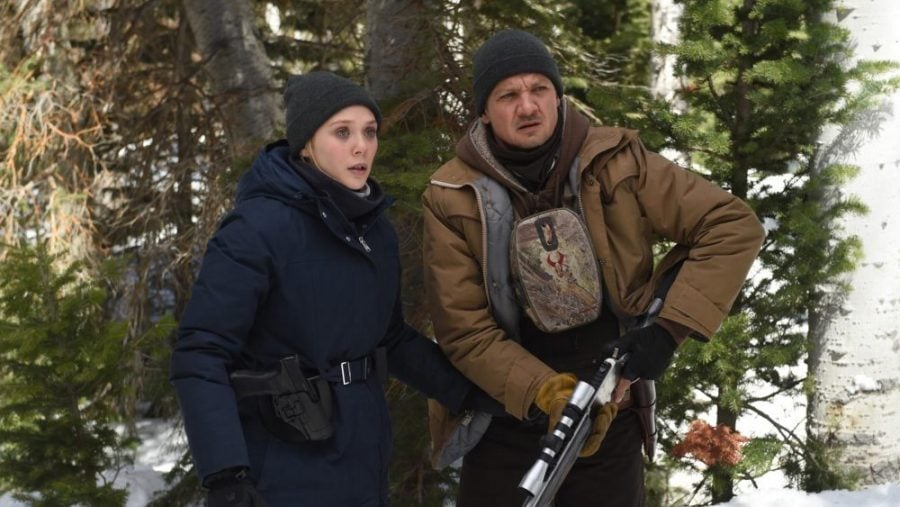
Wind River (2017)
Sicario's screenwriter directs this story of murder in an Indigenous reserve

Incendies (2011)
Part melodrama, part war thriller, Incendies is gorgeous and heartbreaking from the first scene

Curated by humans, not algorithms.
© 2024 agoodmovietowatch, all rights reserved.
Movie Reviews
Tv/streaming, collections, chaz's journal, great movies, contributors, sundance 2017 interview: “my happy family”.

“If you feel bad, call a doctor. Not your relatives.”
These are the wisdom-filled words of Manana (Ia Shugliashvili), the calm but strong-willed protagonist at the heart of “My Happy Family,” a superb, feminist dramedy co-directed by Nana Ekvtimishvili and Simon Gross (the duo shortly goes with “Nana & Simon”). A contemporary woman in her 50s living in Tbilisi, Georgia, the long-time married teacher has always led a traditionally Georgian life: in an apartment with her husband, parents, children and their spouses, where she is often an afterthought, even on her own birthday. Her household is filled with chaos, her daily mundane tasks are interrupted by frequent arguments and the dinner table conversations seem no different. But one day, she quietly and matter-of-factly announces to her hectic, visibly shocked family circle that she has rented a small apartment and will be leaving to live on her own.
With “My Happy Family,” programmed as part of this year’s World Dramatic Competition at Sundance, Nana (the sole screenwriter) and Simon put forth a multi-layered character study, centered on a complex female. Through long takes, rich dialogues and exquisitely managed indoor traffic that brings the films of Asghar Farhadi to mind, the film is first and foremost a playfully sharp critique of patriarchy in Georgian society, and the camaraderie of generations of women that battle against it. In that, it very much shares the themes of the duo’s previous film “In Bloom” that also traces familial relationships and female bonding, but from the point of view of a younger generation and with the backdrop of the 90s.
Below is an interview we conducted with the filmmakers in light of the Sundance premiere of “My Happy Family."
Congratulations on making it to Sundance with “My Happy Family."
Simon : Thanks. It's a big step, because the life of the film actually starts in Sundance. We don't know what will happen. I mean, you never know after such a long time of working and so many difficulties. You have your ideas on what the story is and how it should be received, and in the end, you will know when you see and hear the audience. It is really exciting.
I inevitably approached “My Happy Family” from the lens of my own Turkish culture, in terms of how similar familial relationships are. But it’s changed dramatically in Turkey. So I’m wondering if you observe that in Georgia, too. Are families taking a more independent direction?
Nana : Yes, absolutely. It's still not [as independent as] in Germany or in Europe, but it's also not like in my childhood. Western influence, Internet, and everything that happens around the world change things and have an influence on Georgia.
Simon : There have been big changes [when compared to the terms of] previous presidents. Mikheil Saakashvili [current president] ispushing very much towards the West. It's not going always in one direction. I would say the church, which is an important player, didn't change so much. The [negative] position of the church towards women is quite similar to the 1990s.
Do a lot of extended families live together in Georgia as portrayed in this film?
Simon : This is really quite a typical situation that you have up to three generations in a three or four room apartment and everyone's living together.
Nana : Even if they have money, I heard stories that they buy a bigger house and move in together. Of course there are couples that want to be separated from the families. For example, once people [live abroad for a while] and experience to live independent, when they go back, they cannot imagine living with the mother and father and the grandfather in a one apartment. In the 90s, if one person was earning money, it was quite normal to share with others to buy food and to pay bills and so on. In the 90s, this kind of family structure saved us all somehow. Those were very difficult times in Georgia.

I love the generational play in the film. When she speaks to a young student of hers, who just left her own husband, Manana’s decision to leave gets accelerated.
Simon : Yeah. This is actually quite typical in this generation. Young people marry quite early. Not as early as in the 90s where girls sometimes married at 13, 14, 15. This doesn't happen so often anymore but still, it happens like 17 to 19. Then they also get divorced soon, which is quite new I guess. When this pupil tells her story to Manana, it surprises and triggers her because she is much older and struggling with the same questions this girl touches.
One of the many wonderful things that jumped out at me in this screenplay is; I noticed, while Manana never quite articulates her troubles, we know what she’s experiencing based on the things that build around her. But no one else in her family seems to know.
Nana : That's correct, what you said. Even Manana doesn't know exactly what's wrong with her and why she wants to move out. Sometimes in life, you can’t explain things but just know [that] things feel wrong. You're searching and [think], “I need space for me. I'm an adult woman and I see another option in my life, to go some other way.”
This kind of character, who [does not quite have] an aim from the beginning [but] who goes her way, is interesting to me. She has an inner aim maybe. She is a really sensitive person and someone who hesitates, has thoughts and feelings. It matters what her student says to her. [The kind of mood] at home, where she lived for over 25 years, matters. This kind of women in Georgia and in other parts of the world … they spend their lives in one space with their mom and father, and other family members. One day, it becomes like a cage. [Then], your weapon of [being able to explain things] doesn't exist any more. But your inner feelings and inner will to break free exist.
After Manana leaves her home and gets her own apartment, I couldn’t help but think about women I personally know in Turkey. So I am wondering if she is based on someone real that you personally know.
Nana : She's fictional, but we know a lot of women also in my family who are like her. They spent most of their lifetimes serving for other people in a family: husband and children... Their life is not as important as the life of the family. Of course when I was child, it was normal for me to see that my mother was doing everything. It changed in our family when we started to talk about it. When my sister and I grew up, we asked my mother, “why are you doing this? You should do something for yourself.” My mom was also young and we grew up together. The story comes from that inspiration of [many women] who live family life and somehow miss their individual life. Also, in Georgia, we hear a lot about Georgia's patriarchal society and critical words about men, and how they interfere in a woman's life. We think it's interesting [to also look at] what women do for women. What mothers do for their daughters and how the relationships are between women in one family. This is very important to break this circle somehow. [This is true about most cultures.] Women are more responsible for all things that happen in a family.
Simon : [Manana’s mother Lamara] didn't do this in her life to break through in a way, and she's also saying that she could never do what she wanted. She was serving the family all her life. With this generation of Manana, who’s now in the beginning of her fifties, it starts to change a little bit. She is still a very rare case I would say. We don't know a woman at her age in Georgia who had done this.

It is an interesting moment when Manana’s mother says, her husband is a good one, because he doesn’t drink and he isn’t violent. As if those are things to compliment a man for.
Nana : Indeed. In Georgia, women need to do a lot to be accepted. We should have better grades in school, we should [have good professions], etc. But a man is already a man. And it's an achievement, this male thing, you know? When women want to separate from their husbands, I heard these kinds of arguments a lot. He is a man: if he is not violent, if he is not drinking and is a good father, it's enough.
Thematically, “My Happy Family” is very much in conversation with your previous film, "In Bloom." They tackle similar themes around family, patriarchy and generations of women in Georgia. I'm wondering, is an unofficial trilogy on the way?
Nana : Somehow, yes. You're the first person who really touched on this topic. There are of course a lot of stories, but we're thinking of a third one, also on [women and family], but from another perspective and also [from the point of view of] another age (not teenage and not Manana's age). It's too early to talk now, but it's possible to continue this topic.
Simon : There's no master plan. [We didn’t] draw an outline like ten years ago or anything like that.
I'm really in awe of your compositions and the amount of, sort of choreography you have, both “In Bloom” and in this. You work in confined spaces of apartments, there's a lot going on, both on and off screen. And, all of that, you capture in long takes. What’s your process of preparing for and breaking down those scenes?
Simon : A big part, or sometimes even the biggest part is rehearsing. It starts with a long process of casting where we’re already trying to work with scenes. In this film, we had a long rehearsal time after the casting. We had quite a long time in this apartment, which was almost ready to shoot in. Then we did rehearsals and started to build up the mise-en-scène.
Nana : We think this kind of choreography and mise-en-scène is also good for actors. You let them play and don't interfere because they know what to do and how they should move through the space. They feel free. We let them be free and work around them to catch really good and important moments. Of course you cannot show everything. Also in life, you have one perspective. [We determine] what to show. Maybe show less but [make] you feel more.
Simon : [This process addresses] a big part of the editing early on, because you need to make decisions [in advance that you would normally make] during editing. You have to decide how long one actor will be in one place before he moves to another. As Nana said, “what you want to show?” If you have two actors talking to each other and they are standing opposite of each other, then you obviously cannot show both, which means you have to make decisions much more than in a classic way of shooting. This is of course risky, because when you later see in the editing that you made a mistake, you cannot correct it. At the same time, this forces you to [focus more] on the set.

So, how do you work as co-directors? Do you direct all scenes together, or do you have another method of collaboration?
Nana : This is our second time as co-directors and third film where we work together. Basically, we do everything together. When we have script, we cast together and build a team together. It's not easy to describe. We know each other now for about 13 or 14 years. If I'm talking to team members or to actors, I'm basically saying what Simon also would say. It’s also the other way around. We don't have to repeat ourselves. It happens [organically].
Simon : I think the main thing is to really have the same vision. If you don't have the same vision and you need to discuss the vision on the set, it will not work. [Joint vision] grows during the writing and casting is also again a big phase where we have time to discuss things, to try things out with different actors and then do the rehearsal. Step by step, we build this vision together. When it comes to shooting, [everything is] clear already.
Nana : When we shoot, we often do playbacks [and communicate after each take]. By each take, we have some things that we want to improve on. Maybe nobody understands what we are talking to each other about, because it happens very fast. But we have our lists of points [after seeing the takes and realize] we have most of the same points.
Simon : It really helps to have four eyes basically. We add to each other. And sometimes we disagree and then we discuss it. We know what we want.
In terms of honing in your joint vision, do you ever discuss filmmakers that influence or inspire you? I somehow thought of Asghar Farhadi movies a little during this, but perhaps that didn’t cross your mind.
Simon : We love cinema and we watch a lot of films, but we don't usually discuss other films when we discuss our own film. It's not like a set rule, but instead discuss what we want to do. It grows from the story.
Nana : I would say during our working process, we really forget about other films. It happens automatically. When we are [involved with] our characters, we are talking mostly about life rather than about the cinema.
Simon : That's a good point. [We discuss,] “Does it really happen like that or did it happen in a family we know?” We look more to the connections in the real life.

Tomris Laffly
Tomris Laffly is a freelance film writer and critic based in New York. A member of the New York Film Critics Circle (NYFCC), she regularly contributes to RogerEbert.com , Variety and Time Out New York, with bylines in Filmmaker Magazine, Film Journal International, Vulture, The Playlist and The Wrap, among other outlets.
Latest blog posts

With Season 3, HBO’s Industry Remains One of the Best Shows of the Decade

A Moment in the Spotlight: On The King of Comedy

SDCC 2024: A New Normal?

I’ve Got A Way With Young People: 25 Years of Dick
Latest reviews.

Rebel Moon: Director's Cuts
Simon abrams.

Sheila O'Malley

The Instigators
Robert daniels.

Glenn Kenny

Brian Tallerico

Peak Season
Peyton robinson.
Log in or sign up for Rotten Tomatoes
Trouble logging in?
By continuing, you agree to the Privacy Policy and the Terms and Policies , and to receive email from the Fandango Media Brands .
By creating an account, you agree to the Privacy Policy and the Terms and Policies , and to receive email from Rotten Tomatoes and to receive email from the Fandango Media Brands .
By creating an account, you agree to the Privacy Policy and the Terms and Policies , and to receive email from Rotten Tomatoes.
Email not verified
Let's keep in touch.

Sign up for the Rotten Tomatoes newsletter to get weekly updates on:
- Upcoming Movies and TV shows
- Rotten Tomatoes Podcast
- Media News + More
By clicking "Sign Me Up," you are agreeing to receive occasional emails and communications from Fandango Media (Fandango, Vudu, and Rotten Tomatoes) and consenting to Fandango's Privacy Policy and Terms and Policies . Please allow 10 business days for your account to reflect your preferences.
OK, got it!
- What's the Tomatometer®?
- Login/signup
Movies in theaters
- Opening this week
- Top box office
- Coming soon to theaters
- Certified fresh movies
Movies at home
- Fandango at Home
- Prime Video
- Most popular streaming movies
- What to Watch New
Certified fresh picks
- 79% Deadpool & Wolverine Link to Deadpool & Wolverine
- 97% Sing Sing Link to Sing Sing
- 97% Dìdi Link to Dìdi
New TV Tonight
- -- The Umbrella Academy: Season 4
- -- Tales of the Teenage Mutant Ninja Turtles: Season 1
- -- Mr. Throwback: Season 1
- -- Dance Moms: A New Era: Season 1
- -- Blue Ribbon Baking Championship: Season 1
- -- Love Is Blind: UK: Season 1
- -- The Mallorca Files: Season 3
- -- Taken Together: Who Killed Lyric and Elizabeth?: Season 1
- -- PD True: Season 1
- -- Yo Gabba GabbaLand!: Season 1
Most Popular TV on RT
- 97% Batman: Caped Crusader: Season 1
- 82% A Good Girl's Guide to Murder: Season 1
- 100% Supacell: Season 1
- 80% Star Wars: The Acolyte: Season 1
- 100% Women in Blue: Season 1
- 76% Lady in the Lake: Season 1
- 85% House of the Dragon: Season 2
- 78% Presumed Innocent: Season 1
- 66% The Decameron: Season 1
- -- Troppo: Season 2
- Best TV Shows
- Most Popular TV
- TV & Streaming News
Certified fresh pick
- 97% Batman: Caped Crusader: Season 1 Link to Batman: Caped Crusader: Season 1
- All-Time Lists
- Binge Guide
- Comics on TV
- Five Favorite Films
- Video Interviews
- Weekend Box Office
- Weekly Ketchup
- What to Watch
30 Most Popular Movies Right Now: What to Watch In Theaters and Streaming
25 Most Popular TV Shows Right Now: What to Watch on Streaming
What to Watch: In Theaters and On Streaming
Awards Tour
Weekend Box Office: Deadpool & Wolverine Is Officially the Highest-Grossing R-Rated Film of All Time
New Movies and TV Shows Streaming In August 2024: What to Watch on Netflix, Prime Video, Disney+, Max and more
- Trending on RT
- Paris in Movies
- Popular Complete Series
- Certified Fresh in July
- Movies on Disney+
- Shows on Hulu
My Happy Family Reviews

The takes are often long and clearly meticulously choreographed, but rarely conspicuously so.
Full Review | Jan 12, 2023
I drank it in, the superb, underplayed acting, the perceptive script, stunning visuals of a woman who has, at last, discovered who she is by watching the wind rustle in the trees and soaking up the quiet.
Full Review | Jul 6, 2021
The brilliantly performed and progressive Georgian drama explores the perspective of a 50-year-old woman who "leaves" her entire family against societal odds.
Full Review | Oct 28, 2020
Thoroughly engaging from start to finish, this is a fluid and confident effort centered on family and intricate relationships.
Full Review | Original Score: 4/5 | Oct 19, 2020
... stories like this still have the power to intrigue us because these anxieties are really not that remote: the figure of the woman who choses independence in this way is a spectre that continues to haunt the patriarchal imagination.
Full Review | Mar 12, 2018
Ia Shughliashvili's performance as Manana is wonderfully understated - the kind of performance that doesn't feel like active performing at all.
Full Review | Feb 15, 2018
Through simple and genuine storytelling and wonderfully chaotic scenes of domestic disputes and disorder, Manana (Ia Shugliashvili) is the heroine of her own adventure.
Full Review | Original Score: B+ | Jan 25, 2018
... I couldn't have been happier with it.
Full Review | Dec 20, 2017
Georgian writer-director Nana Ekvtimishvili (In Bloom) brings a rare subtlety and sensitivity to this ironically titled domestic drama.
Full Review | Dec 14, 2017
[An] enthralling and masterful achievement.
Full Review | Original Score: 4/4 | Dec 4, 2017
The sparseness and patience of My Happy Family are integral to its power, matching the inscrutability of Manana herself.
Full Review | Original Score: Recommended | Jul 24, 2017
My Happy Family casually lays out the domestic space where the story's events takes place with acutely detailed cultural specificity.
Full Review | Original Score: 3/4 | Mar 8, 2017
My Happy Family borrows and remixes the social realism and aesthetic formalism of the Dardennes in a way that allows it to exude an energy all its own.
Full Review | Original Score: B+ | Feb 17, 2017
A quietly devastating portrait of what it means to be a woman in a man's world.
Full Review | Original Score: 4/5 | Feb 10, 2017
The scenes with Manana's relatives are masterful presentations of family as an overwhelming experience.
Full Review | Jan 26, 2017
Remarkable blend of comedy and sadness.
Full Review | Original Score: A- | Jan 25, 2017
It may well be the best film I've seen this year.
Full Review | Jan 23, 2017
It's a simple, somewhat mundane scenario that, in the hands of a terrific cast and two talented filmmakers, is transformed into a minor Greek comic-tragedy, with one fearless woman trying to stave off loved ones who smother her with guilt and affection.
An interesting sociological perspective on a changing patriarchal society.
A small jewel of a film that gives this women-in-a-man's-world viewpoint a generational shift.
Full Review | Jan 20, 2017
Your browser is not supported
Sorry but it looks as if your browser is out of date. To get the best experience using our site we recommend that you upgrade or switch browsers.
Find a solution
- Skip to main content
- Skip to navigation

- Back to parent navigation item
- Digital Editions
- Screen Network
- Stars Of Tomorrow
- The Big Screen Awards
- FYC screenings
- World of Locations
- UK in focus
- Job vacancies
- Cannes Close-Up
- Distribution
- Staff moves
- Territories
- UK & Ireland
- North America
- Asia Pacific
- Middle East & Africa
- Future Leaders
- My Screen Life
- Karlovy Vary
- San Sebastian
- Sheffield Doc/Fest
- Middle East
- Box Office Reports
- International
- Golden Globes
- European Film Awards
- Stars of Tomorrow

Subscribe to Screen International
- Monthly print editions
- Awards season weeklies
- Stars of Tomorrow and exclusive supplements
- Over 16 years of archived content
- More from navigation items
'My Happy Family': Sundance Review
By Lee Marshall 2017-01-20T18:30:00+00:00
Dirs: Nana Ekvtimishvili, Simon Gross. Germany/Georgia/France. 2017. 119 mins.
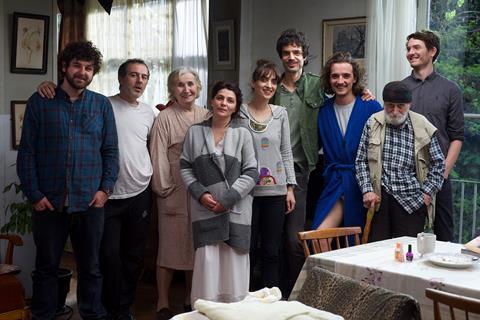
Directing duo Ekvtimishvili and Gross’s much feted 2013 festival hit In Bloom showed how the lives of two young girls in the former Soviet republic of Georgia were subtly, and not so subtly, constrained by men. Set again in Tbilisi, this follow-up is a small jewel of a film that gives this women-in-a-man’s-world viewpoint a generational shift.
Manana’s steadfast refusal to explain her actions infuriates those around her and intrigues the audience.
Premiering at Sundance in the World Dramatic competition, My Happy Family tells the story of a middle-aged wife and mother whose decision to leave her family for an apartment of her own becomes, for those around her, an intolerable affront to the natural order of things. Slow-paced but always absorbing, the film features a magnetic central performance by Ia Shugliashvili as one of the strongest, most quietly heroic introverts we’ve seen on screen in a while.
At around the mid point of this two-hour drama, we see Shugliashvili’s 50-something character Manana relaxing in an armchair in the shabby, unfurnished apartment she has rented on her meagre high-school literature teacher salary, facing a French window that opens onto a rusty iron balcony. The leaves of a poplar rustle in the breeze outside; on an occasional table next to Manana is an open book, a slice of cake and a cup of tea; a Mozart concerto is playing on a cheap CD player. It’s Virginia Woolf’s feminist essay A Room of One’s Own distilled into a single, beautiful shot, and like the rest of this film, it’s an image that will resonate with audiences worldwide.
While In Bloom had the bloom of youth as an audience pull factor, this mature follow-up is the more universal film. Though rooted in Georgian culture – especially in the sentimental folk songs that seem obligatory whenever a group of locals get together over a bottle or two – Manana’s story could be set in London, Chicago, Naples or Shanghai. Anywhere, that is, where women are liable to fall into the crack between society’s idea of their happiness, and their real happiness.
What comes before this mid-point moment of calm is the pressure-cooker that has led Manana here. She lives, or lived, in a small downtown Tblisi apartment with husband Soso, a complaining battleaxe of a mother, an elderly father, an unemployed young adult son and daughter, plus the latter’s student husband.
Everyone rubs along more or less between flare-ups, and at first it’s the down-in-the-mouth Manana who seems the sourpuss as she sulks through a birthday party that her apparently affectionate hubby Soso has thrown for her. But she had told him not to invite anyone, and gradually we see how these small but constant erosions of her personal freedom in the name of family ties, good cheer, and social custom have eaten into her soul. Even getting dressed is a challenge: there’s only one wardrobe in the flat, in the bedroom that daughter Nino shares with her husband Vakho.
Working with Romanian DoP Tudor Vladimir Panduru, who shot Cristian Mungiu’s recent Graduation, the directors make the widescreen frame seem a narrow letterbox into which the characters, in continual, restless movement, barely fit. The camera tracks Manana in pretty much every scene, building sympathy but also creating eddies of tension as she moves into and out of spaces of male threat and entrapment. Other women’s stories involving her daughter Nino, an old school friend and a high-school student who is already divorced at the age of 18 impact on the heroine’s own decisions but also paint a picture of a society where the actual kidnapping of a young girl we witnessed in In Bloom, in order to force a marriage, has been replaced by more subtle but no less effective forms of control.
Food, drink and song are three such cultural constraints, and all three are stitched carefully into My Happy Family’ s dramatic fabric – for example, in the joyous release we see on Manana’s face when market shopping finally becomes a pleasure, rather than something for her mum to attack her about.
Though warned well in advance, Manana’s family can hardly believe it when she makes good on her promise to move out, especially as (we are told) her husband doesn’t hit her, and is neither a thief nor a drug addict. At this point, a coercive mechanism of little chats and family conferences kicks in, with the aim of persuading her to change her mind: it’s Manana’s borderline abusive brother who comes closest to the real reason for this flurry of concern when he tells her “I don’t want everyone talking about my sister”.
Her steadfast refusal to explain her actions infuriates those around her and intrigues the audience. There’s a never-quite-resolved mystery to this strong but undemonstrative woman that carries us through two hours of slow-build drama - a drama that is given an enjoyable, quasi-comedy twist in the film’s only slightly over-long second half.
Production companies: augenschein Filmproduktion, Polare Film, Arizona Productions,
International sales: Memento Films, [email protected]
Producers: Jonas Katzenstein, Maximilian Leo, Simon Gross
Screenplay: Nana Ekvtimishvili
Cinematography: Tudor Vladimir Panduru
Editor: Stefan Stabernow
Production designer: Kote Japharidze
Main cast: Ia Shugliashvili, Merab Ninidze, Berta Khapava, Tsisia Qumsishvili, Giorgi Khurtsilava, Giorgi Tabidze, Goven Cheishvili, Dimitri Oragveidze
- Eastern Europe
- World Cinema Dramatic Competition
Related articles

Sarajevo unveils Kinoscope, In Focus, Open Air programmes
2024-08-05T11:10:00Z By Ben Dalton
Kinoscope strand includes Cannes titles ‘All We Imagine As Light’ and ‘Santosh’.

Meg Ryan to receive Sarajevo Film Festival honorary award
2024-08-05T09:26:00Z By Ben Dalton
Ryan will present ‘You’ve Got Mail’ and hold a masterclass at the festival.

Sarajevo’s CineLink Work in Progress selection includes Alisa Kovalenko’s ‘Frontline’
2024-08-03T15:29:00Z By Ben Dalton
Kovalenko will present the documentary about her four months serving in the Ukrainian army.
More from Reviews

‘The Killers’: Fantasia Review
2024-08-03T09:00:00Z By John Berra
Lee Myung-Se joins this South Korean portmanteau in which four directors put their spin on Ernest Hemingway’s assassin story

‘Trap’: Review
2024-08-02T08:33:00Z By Tim Grierson Senior US Critic
Josh Hartnett is a father desperately trying to keep his darkest secret in M Night Shyamalan’s lacklustre thriller

‘Self Driver’: Fantasia Review
2024-08-02T08:00:00Z By Nikki Baughan
A Toronto cab driver takes a journey to the dark side in Fantasia’s New Flesh award winner
- Advertise with Screen
- A - Z of Subjects
- Connect with us on Facebook
- Connect with us on Twitter
- Connect with us on Linked in
- Connect with us on YouTube
- Connect with us on Instagram>
Screen International is the essential resource for the international film industry. Subscribe now for monthly editions, awards season weeklies, access to the Screen International archive and supplements including Stars of Tomorrow and World of Locations.
- Screen Awards
- Media Production & Technology Show
- Terms and conditions
- Privacy & Cookie Policy
- Copyright © 2023 Media Business Insight Limited
- Subscription FAQs
Site powered by Webvision Cloud
Suggestions
Review: my happy family.
It casually lays out the domestic space where the story’s events takes place with acutely detailed cultural specificity.
Nana Ekvtimishvili and Simon Gross’s My Happy Family navigates the aftershocks of a breach of a society’s restrictive codes of female conduct when 52-year-old Manana (Ia Shugliashvili) moves out of the cramped house she shares with her large family. Her refusal, perhaps even inability, to explain or justify her abrupt decision to leave vexes and frustrates her friends and family, especially given that she insists that her husband, Soso (Merab Ninindze), neither abused nor cheated on her. Rather than focus on the reasons for Manana’s departure, the film homes in on how everyone’s imperious reactions to her choice are rooted in deeply sexist expectations of maternal sacrifice and a wife’s undying subservience to her husband.
Set in Tbilisi, Georgia, My Happy Family casually lays out the domestic space where the story’s events takes place with acutely detailed cultural specificity: multiple generations living under one roof; the loosened yet still implicitly unquestioned patriarchal rule; and frequent large gatherings with an excess of both alcohol and communal singing. But the barrage of boisterous get-togethers and incessant pestering by entitled, petty family members explains only a sliver of Manana’s discontent with her home life. The stark contrast of her decaying yet peaceful new abode does, however, speak volumes to her desire to re-center herself in a space free of discord. A breeze blows through her balcony door and over her like a balm for her tired mind. Even the disparity between Manana’s two worlds is ingrained in the film’s style: The camera, persistently handheld as it manically hovers over Manana’s every movement when she seeks refuge from the chaos of her family’s home, steadies itself when the woman is inside her new apartment.
Shugliashvili shrewdly conveys Manana’s sense of emotional exhaustion and rejuvenated spirit as the character remains steadfast in her decision to live alone despite still visiting her family quite often. While the story of her past remains elusive, the film offers subtle details that paint an impressionistic portrait of the life Manana wishes to escape. From Soso throwing her a birthday bash she doesn’t want, to her full-grown son Lasha (Giorgi Tabidze) and daughter Nino’s (Tsisia Qumsashvili) growing indifference to her authority, to her parents nagging, domineering behavior, Manana’s individuality is stifled at every turn, leaving her only chance for true agency in her decision to remove herself from the environment that denies it to her.
As her parents and extended family plead with Manana to move back home, staging interventions and suggesting that she’s destroying the family’s reputation, we see the complexities of deeply rooted familial connections at work. Soso, baffled by his wife’s exodus, still steps in to defend her against harsher attacks by others, while her children continue to seek her advice regarding their own personal problems. One senses the woman grappling with the magnetic pull that the family home exerts on the fiber of her being. Throughout, her situation remains messy and ill-defined, as Soso continues to live with Manana’s parents while Manana never officially asks Soso for a divorce, and the film effortlessly inhabits this gray area where relationships are neither entirely severed nor repaired and freedom is an arduous process rather than earned instantaneously through a single decision.
My Happy Family ’s penultimate scene transitions to more explicitly existential, and emotionally specific, terrain. After a physical altercation with three men sent by Manana’s brother to look after her, Manana and Soso move inside her apartment for their first and only heated exchange in the film. Manana, flustered by the unexpected violence between Soso and the hired thugs and yet another family member intruding on her privacy, asks of Soso, “How have you lived your life?” The question remains unanswered and lingers in the air, offering a fleeting glimpse into both the difficulties that Manana likely put up with for three decades of marriage and the type of man Soso may actually be. Most importantly, by alluding to the potential violence and volatility of Soso’s past, this exchange reinforces the courage and sheer strength of will it took Manana to break free from her toxic environment—and as she finally takes her husband to task, and in her own space no less, she truly reemerges as her own person and the one who will be determining her own future.
You might be interested in
Brighton 4th Review: A Bittersweet Drama About the Imperative of Sacrifice
Review: The Courier Wraps a Cold War Chapter in Comforting Clichés
Review: In Bloom
Derek Smith
Derek Smith's writing has appeared in Tiny Mix Tapes , Apollo Guide , and Cinematic Reflections .
Leave a Reply Cancel reply
Your email address will not be published.
Save my name, email, and website in this browser for the next time I comment.
Review: Kong: Skull Island
Review: The Last Family
Sign Up for Our Weekly Newsletter
By providing your information, you agree to our Terms of Use and our Privacy Policy . We use vendors that may also process your information to help provide our services. This site is protected by reCAPTCHA Enterprise and the Google Privacy Policy and Terms of Service apply.
‘My Happy Family’ Review: A Wife and Mother Escapes Her Trap — Sundance 2017
- Share on Facebook
- Share to Flipboard
- Share on LinkedIn
- Show more sharing options
- Submit to Reddit
- Post to Tumblr
- Print This Page
- Share on WhatsApp
It doesn’t take long to realize that the title of the Georgian drama “My Happy Family” is ironic. Directors Nana Ekvtimishvili and Simon Grob plunge into the restless lifestyle of 52-year-old Manana (Ia Shuvliashvili), the matriarch of a cramped and multigenerational household that includes her husband, grown children, parents and various in-laws who pull her from every angle. And it doesn’t take long for Mañana to realize that to escape the mayhem, much to the shock of everyone around her, she can simply move out.
The ease with which she embarks on this new stage, even as it baffles her entire community, speaks to the remarkable blend of comedy and sadness that characterizes this sophomore effort from the directors of “In Bloom.” It’s at once a celebration of individuality and its potential to unnerve those who resist it.
Manana’s life is defined by routine. She’s a pinball in her apartment, bouncing from one whiny relative to the next, finding only a modicum of respite at the local school where she teaches. It’s there that she learns one of her students just got divorced, which gets Manana thinking maybe she needs to do the same thing. It’s a credit to the subtlety of Ekvtimishvili and Grob’s screenplay that her decision doesn’t stem from a major brawl. When her husband throws her a birthday party she doesn’t want, inviting a bunch of his friends over to drink, her mind’s made up: She’s out of there.
In response, all anyone can do is tell her she’s wrong. Her wily mother hurtles one shrill indictment after another, while the rest of the clan bemoan their own issues, which seem to get worse each time Manana returns from her nearby apartment to check in. In one amusing highlight, her father complains that he’s survived multiple oppressive regimes only to get hit in the nuts during a domestic dispute among younger relatives.
As a whole, Manana’s rowdy family recall the similarly tradition-bound complainers of “My Big Fat Greek Wedding,” minus the cheekiness and with a lot more allegiance to the Christian Orthodox Church. The assumption of wisdom behind their ways sets the stage for a series of ridiculous exchanges. When Manana’s relatives sit her down with older members of her community in a last-ditch attempt to get her to stay, their presence is explained in blunt terms: “There are elderly people here. They might say something wise.” They don’t.
Manana’s decision to buck the religious expectations of women in her community gives “My Happy Family” an enlightening feminist streak, which owes much to its central performance. With only a few credits to her name, Shugliashvili turns in a wonderfully textured character who seethes with anger but never erupts. The rest of her family avoids caricature, with her good-natured husband Soso (Merab Ninidze) standing out for the way he expresses genuine concern for his wife while struggling to comprehend her frustrations; later, he reenters her life under new terms, in a twist that suggests the Georgian answer to fluffy studio romances of the “It’s Complicated” variety, but far more nuanced in its implications.
Other relatives show they care for her in wildly miscalculated acts of desperation, particularly her brother Rezo (Dimitri Oragveldze), who sends goons to look after her. Manana’s enlightened sense of self strikes everyone as a malady. “You make problems out of nothing,” says one relative when Manana refuses to justify her decision, and she doesn’t debate the point so much as set it aside; no argument can salvage her from preordained judgement.
“My Happy Family” was shot by Romanian cinematographer Tudor Vladimir Panduru (who also did Cristian Mungiu’s “Graduation”), and recalls many of the strengths found in recent Romanian cinema, which often peers into the hectic personal dramas of characters who are smothered by social expectations. The story is laced with lovely melodies and traditional songs that play off Manana’s internal desperation; the camera roams freely around her in crowded scenes that show just how much the groupthink alienates her from her own needs. One brilliant tracking shot finds her walking away from gossiping women and straight into a roomful of men singing a religious tune, making it clear that there’s no safe place where she can simply be herself.
For the most part, “My Happy Family” hovers in Manana’s conundrum; trapped between her matriarchal sense of responsibility and personal need, her situation doesn’t build to much beyond the initial setup over the course of two hours, and the anti-climactic finale falls short. But that gap in clarity speaks to the underlying power of “My Happy Family”: even as actions speak louder than words, they don’t really make things better.
“My Happy Family” premiered in the World Narrative Competition section at the Sundance Film Festival. It is currently seeking distribution.
Most Popular
You may also like.


“My Happy Family” Celebrates Women Living For Themselves: BUST Review
In the Georgian drama film My Happy Family , Manana (Ia Shughliashvili), a middle-aged schoolteacher, decides to move out of the apartment she shares with her parents, her husband, her children, and nearly everyone reacts with varying degrees of scorn and shock. Manana’s own reticence to explain her sudden change of heart certainly compounds her family’s confusion; as she stoically gathers her things together and loads them in bags, she’s followed by an increasingly hysterical cacophony of curses and pleas. Why did Manana suddenly decide that what she needed was her own place? Yet to the audience, a mere scene transition from her family home, filled to the brim with chatter and demands, to her new apartment renders Manana’s motives startlingly clear — we hear nothing except for the breath of the wind and scattered birdsong. There’s nothing in Manana’s new apartment but Manana herself; she has the power to choose the sounds she wants to surround herself with.
There’s no clichéd moment of catharsis in My Happy Family in which we see Manana instantly make the decision to leave her family, no shouted declaration of “I’ve had enough!” Rather, we get a portrait of a woman worn away by degrees, like waves carving into a cliffside. After fulfilling society’s expectations of her as a wife and mother and daughter, the sounds of her family’s needs and pleas and wants have accumulated in the creases of her forehead over the years; now, all she wants is silence. Indeed, in the face of her family’s outrage, Manana’s key weapon is her quiet nature and her unflappable resolve: the more one-sided the screaming matches are, the more obvious it is why Manana left. There’s comedy buried in the mise-en-scène of the scene where her family tries to stop her from leaving; as Manana’s son wonders aloud, “I can’t understand why she doesn’t like it here,” we see in the background a bed pushed into an open hallway nook, a reminder of the sheer lack of privacy that Manana wants to leave behind.
It’s a smart move on the part of the directors (Nana Ekvtimishvili and Simon Groß) to begin My Happy Family with Manana being shown the new apartment, where the doors creak and the voice of the realtor echoes beneath high ceilings, only to then switch to the overstuffed family apartment, where the cross-cutting and interrupting noises of her mother, children, and the television blaring in the background provide a wallop of a contrast. In the following scene, the family apartment becomes even more crowded as relatives pour through the front door, eager to take part in the birthday party Manana explicitly stated she didn’t want. As Manana stands outside on the balcony, alone, her family drinks, sings, gossips, blithely unaware that Manana would rather trade their presence for the space of her own thoughts. We know instantly what she’s leaving behind, and why.
- Nana Ekvtimishvili Brings Her Georgian Heritage To The Big Screen: 52 Weeks of Directors September 30, 2016
Ia Shughliashvili’s performance as Manana is wonderfully understated — the kind of performance that doesn’t feel like active performing at all. Her movements are careful and slow, almost dreamlike; her face is the face of someone thinking a million more thoughts than they dare to express. After all, it’s clear that when she does express what she wants — whether it’s a quiet birthday, or asking her brother to respect her privacy in her new neighborhood — she’s ignored outright. When she demonstrates what she wants in deed rather than word — namely, when she moves out — her family just assumes that she’ll change her mind, that her expressing a modicum of independence is merely a phase she needs to get out of her system before she returns home. It’s as if Manana doing something for herself is a temporary state, and that her acting the way she’s expected to out of guilt or obligation is the natural order.

Only in her role as a teacher (which provides her financial independence) does Manana feel as though her thoughts and opinions matter and are worth expressing — here, the conversations she takes part in are two-way affairs, not heads butting up against one another. In a key scene early in My Happy Family , she confronts a truant student, only to find out that the young girl (who cannot be older that seventeen or eighteen) has missed so much school because she was getting divorced. (The fact that she was even married comes as a shock to both us and to Manana.) The student then tells Manana about why she left her husband, then remarks, “If you say no, you should mean it. You shouldn’t look like you’re hesitating […] many girls tell their sweethearts that they’re leaving. But they get back together. If you say it once, you should do it.” We see Manana’s gaze leave her student’s face and turn inwards, no doubt steeling herself for the messiness of trying to leave, preparing herself the resistance she will face.
The movie’s episodic pacing continues until about the halfway point, when the other shoe Manana hadn’t even anticipated drops: at a party with her former school classmates, Manana finds out that her husband Soso (Merab Ninidze) — the one member of her family who had accepted her leaving without the histrionics and air of betrayal — had had an affair over a decade prior, and that he has a son. In a parallel to the birthday party scene, Manana sits silently, her composure slowly wilting as the women discussing Soso act like she’s not there, praising her for not making a fuss over Soso’s infidelity. Finally, we see the dam break when she escapes to the bathroom and cries for the only time in the film. Of course, even after feeling her world shatter around her, she’s pulled back into the world of obligation as soon as she leaves the bathroom: the partygoers demand she play a song for them on the guitar, and her demurrals and “no” are ignored outright. And yet her relationship with Soso does not change much even with the weight of knowledge she’s rather not have (without getting into spoilers here).
A pair of later conversations between Manana and her daughter Nino (Tsisia Qumsishvili), who lives in the family apartment with her husband, provide Manana with a look back onto her own life, and highlight another reason for becoming independent, even at this late stage: to show her daughter another way that doesn’t involve following the expected life plan. In the first conversation, Manana, who knows that Nino’s husband is having an affair, urges her daughter that perhaps not being able to get pregnant is not the worst thing in the world—that she is young enough to be able to study, or travel, with the implication that Manana wishes she had done more of those things before getting married and having children. Manana tells Nino that perhaps she and her husband need to get to know one another better anyway to see if they are truly a good pair; Nino, perhaps already suspecting that something is wrong in her marriage, goes on the attack, accusing Manana of interfering in her life and trying to push her to leave just as Manana left Soso.
Yet in the second conversation, which takes place after both Manana and Nino have learned their own uncomfortable truths, all Manana can do is give her crying daughter water and murmured encouragement, while Nino mourns, “If I were pregnant, everything would be better now” — despite Manana’s best efforts, Nino has internalized society’s expectations for her, and finds a way to blame herself. In response, Manana tells Nino, “It hurts now, but you’ll see things differently.” Feeling both sorrow and relief, Manana sees the future open up for her daughter, just as it did for her student when her student made the choice to leave. It make have taken Manana until middle age to dream of a future where she lives for herself and not just for her familial obligations, but she’s there now.
My Happy Family is streaming on Netflix now
More from BUST
“Permission” Is A Comedy Of Errors About An Open Relationship
Zosia Mamet Stays True To Her “Girls” Roots In “The Boy Downstairs”
“Phantom Thread” Is A Horror Movie Disguised As A Romance
Deborah Krieger
Robin thede’s late-night show “the rundown” is must-see tv: bust interview, this book explores how carl jung ripped off toni wolff’s ideas, you may also like, kitty the killer: a bust movie review, ellen wong is back in scott pilgrim takes off , jennifer lopez’ new film atlas: a bust review, furiosa: a mad max saga. a bust review, amy winehouse’s biopic – back to black: a bust review, beanie feldstein dishes on her new film drive-away dolls: a bust interview.

Get the print magazine.
Subscribe to our weekly newsletter.
You have successfully joined our subscriber list.
Founded in 1993, BUST is the inclusive feminist lifestyle trailblazer offering a unique mix of humor, female-focused entertainment, uncensored personal stories, and candid reporting that tells the truth about women’s lives.
Submit to BUST
Where to Find BUST
Privacy Policy
Subscription Terms & Conditions
Recent Posts
©2023 Street Media LLC. All Right Reserved.
Keep me signed in until I sign out
Forgot your password?
A new password will be emailed to you.
Have received a new password? Login here
- Daily Newsletter

Berlin Review: ‘My Happy Family’ is a Stirring and Gorgeously Naturalistic Drama
Nature abhors a vacuum, and so too does human curiosity. Anyone seeking to throw the world around them into chaos should do something unexpected and dramatic, and then refuse to answer for their reasoning. Into the silence where an explanation ought to exist, people will begin to pour their own inferences, composed either of wild theories, projections of their own insecurities, or secrets they assume are now common knowledge. In the end, thanks to the means by which humanity seeks to make sense of the unexplained, a single change for an unspoken reason is often just the beginning of a near cataclysm of life-altering changes for anyone in the immediate area.
In My Happy Family , the stirring and gorgeously naturalistic drama by directors Nana Ekvtimishvili and Simon Groß , a woman discovers just how much chaos a single decision can cause. Manana ( Ia Shugliashvili ) is a school teacher who lives with her husband, her son and daughter, her son-in-law, and her mother and father. After years of enduring this living situation, she announces – on her birthday of all days – that she is planning on moving out into an apartment of her own. No one can understand why she would do this, especially since her husband is not abusive, does not drink to excess, and everyone in her family loves her.

Manana, to her credit, never explains herself to anyone, and neither does the film explain her choice to the audience. Of course some reasons are as clear as day. The apartment she inhabits with her extended family is small, cramped, and filled with noise. The camera moves within the space with a sense of claustrophobia and anxiety, trembling as it seeks to makes its way through the crowd. The noise, likewise, composed of footfalls and moving objects and a sea of hectoring, rising voices, overpowers the soundtrack. Meanwhile, in her private apartment, Manana is allowed to sit in silence, as does the camera, and the sound of birdsong, wind, and music fills the air.
This evocation of space and atmosphere is the greatest strength of My Happy Family . Despite tracking a narrative that could be dismissed as being too familiar – a middle-aged woman finally finds happiness – the film manages a level of specificity and honesty that makes it feel like a truly original story, rather than a riff on an archetype. Much of that may come from the grounding of the narrative in Georgian culture. For long stretches, one could be forgiven for thinking that this movie was a musical, given how often the characters devote themselves to singing and playing instruments. Nearly every song is allowed to play out in its entirety, and each has its own purpose within the story.
Shugliashvili, as the center around which the chaos of the narrative spins, is an instantly engaging presence. Rather than play Manana as an object of sympathy, she plays her as an object of curiosity. The movie never for a second judges her decision to move as an act of desperation, nor does it look back on her life before the move with mourning. She has made a decision that is the best for her, and from that moment on the film allows her to live that decision’s reality with truth and objectivity.

What is most admirable and most interesting about My Happy Family , though, is the way in which it tracks the response of the people around Manana. Everything is viewed through her perception, and slowly but surely one can see how her choice acts as a harbinger of a new and perhaps better life for those around her. Her daughter shakes herself out of her own marital funk. Her husband must reckon with his failings. Her friends must take stock of their own choices. And, most importantly, the new impression of her as a strong and independent woman allows for certain people to treat her with more maturity and a possibility-misguided sense that she knows and understands more than she does. Life for Manana will never be the same, for better and worse, but it will become more wholly hers.
My Happy Family borrows and remixes the social realism and aesthetic formalism of the Dardennes in a way that allows it to exude an energy all its own. With a remarkable fullness of understanding, it tells a deeply personal story while revealing essential human truths, all without ever feeling constructed or false.
My Happy Family screened at Berlin Film Festival and will be released by Netflix on December 1.
See our complete Berlin 2017 coverage .
The Definitive Voice of Entertainment News
Subscribe for full access to The Hollywood Reporter
site categories
‘my happy family’ (‘chemi bednieri ojakhi’): film review | sundance 2017.
Georgian directoring duo Nana Ekvtimishvili and Simon Gross ('In Bloom') deliver a sophomore feature about a woman who decides to leave the homestead in 'My Happy Family'.
By Jordan Mintzer
Jordan Mintzer
- Share on Facebook
- Share to Flipboard
- Send an Email
- Show additional share options
- Share on LinkedIn
- Share on Pinterest
- Share on Reddit
- Share on Tumblr
- Share on Whats App
- Print the Article
- Post a Comment

My Happy Family - Still 1 - H 2017
The famous George Burns quote that “Happiness is having a large, loving, caring, close-knit family in another city” is literally put into practice by the heroine of Georgian directors Nana Ekvtimishvili and Simon Gross’ perceptive and endearing second feature, about a 52-year-old mother who changes her life by moving out of the house. It’s a simple, somewhat mundane scenario that, in the hands of a terrific cast and two talented filmmakers, is transformed into a minor Greek comic-tragedy, with one fearless woman trying to stave off loved ones who smother her with guilt and affection.
Premiering in Sundance’s World Dramatic competition before screening at the Berlinale Forum, the film should find takers in co-producing countries France and Germany, with additional slots in select territories – including the U.S., where the duo’s prizewinning feature debut, In Bloom , received limited distribution back in 2014.
The Bottom Line Movin’ out.
Reminiscent of Romanian New Wave dramas like Cristi Puiu’s recent Sieranevada , the ironically titled My Happy Family ( Chemi Bednieri Ojakhi ) takes a low-key, immersive approach to the travails of Manana ( Ia Shugliashvili ), a schoolteacher who lives with her parents, husband and grown-up children in a crowded apartment in the Georgian capital of Tbilisi . From the first time we see her at home, where she’s encircled by feckless kids and a nagging mother ( Berta Khapava ) who makes the one in Woody Allen’s Oedipus Wrecks seem like a model of restraint in comparison, it’s clear that Manana suffers from genealogical overkill and needs a break.
She finds a way out by renting a modest two-room flat in another part of town, leaving her mom’s house without offering so much as a simple explanation to her husband, Soso ( Merab Ninidze ), a man of few words with whom she seems to have a thorny relationship. Meanwhile, her daughter, Nino ( Tsisia Qumsashvili ) and son, Lasha ( Giorgi Tabidze ), seem to accept Manana’s decision – or are otherwise too caught up in their own lives to care – while her mother fights tooth and nail to keep her home.
Shooting in uninterrupted takes with direct sound and no additional score, Nana & Simon (as the directors call themselves) initially plunge us into the loud and turbulent household from which Manana hopes to escape, with an early table scene reminiscent of – to cite Woody Allen again – the boisterous dinner scene flashback in Annie Hall . It’s nearly impossible to escape company inside crammed living quarters that are constantly filled with visiting family members and friends, and Manana can’t even get clothing out of the closet without upsetting her daughter and causing a ruckus.
When she finally moves out, she seems to be breathing the air of freedom for the first time, and the filmmakers contrast the earlier scenes of collective chaos with ones of Manana sitting alone in her quiet new living room with the window open, or else listening to a Mozart piano sonata as the sun goes down. Gradually, we learn that she once had a life of her own before giving it all up for the family, and when an old schoolmate invites her to a class reunion, she reveals herself to be a passionate singer and guitar player, belting out a love song that nearly brings her friends to tears.
Related Stories
'call me by your name': film review | sundance 2017.
For her first role in a feature movie, Shugliashvili offers up a movingly restrained performance that slowly but surely bears its fruits as Manana’s decision winds up having a few third-act repercussions, though not necessarily negative ones. Indeed, the closing reels of My Happy Family may seem a bit underwhelming considering all the build-up, though Nana and Simon are less concerned with dramatic tension than with conveying Manana’s ongoing struggles to escape the crushing onslaught of traditional domesticity, especially in a country and culture where people rarely stray far from home.
Alongside the strong ensemble cast, including Ninidze as a husband who’s conspicuously silent about his wife’s behavior, superb camerawork by Tudor Vladimir Panduru ( Cristian Mungiu’s Graduation ) involves lots of complex staging in tight quarters, with characters popping out from all angles like zombies assailing a lone woman under siege. There is truly no privacy to be found in a crowded house, and as Manana’s soon learns at a certain price, perhaps the best solution in such cases is to become a family of one.

Venue: Sundance Film Festival (World Dramatic Competition) Production company: Augenschein Filmproduktion Cast: Ia Shugliashvili , Merab Ninidze , Berta Khapava , Tsisia Qumsashvili , Giorgi Khurtsilava , Giorgi Tabidze , Goven Cheishvili , Dimitri Oragvelidze Directors: Nana Ekvtimishvili , Simon Gross Screenwriter: Nana Ekvtimishvili Producers: Jonas Katzenstein , Maximilian Leo, Simon Gross Director of photography: Tudor Vladimir Panduru Production designer: Kote Japharidze Costume designer: Medea Bakradze Editor: Stefan Stabenow Casting director: Leli Miminoshvili Sales: Memento Films International
In Georgian 119 minutes
THR Newsletters
Sign up for THR news straight to your inbox every day
More from The Hollywood Reporter
Zendaya, robert pattinson in talks to star in a24’s ‘the drama’ from director kristoffer borgli, burbank int’l film fest: paul feig set for vanguard award, ‘awards chatter’ live podcast, ben affleck, matt damon developing hulk hogan movie about gawker case, how jennifer garner got involved with ‘deadpool & wolverine’, ‘first purge’ filmmaker gerard mcmurray to direct ‘goons’ for confluential films’ new horror label, ‘practical magic’ producer says sequel will “honor” original film.
Press Herald
Account Subscription: ACTIVE
Questions about your account? Our customer service team can be reached at [email protected] during business hours at (207) 791-6000 .
- Arts & Entertainment
At Circus Smirkus, coming to Maine on Aug. 5-6, kids entertain kids
The Vermont-based family circus will stage shows in Cumberland, Kennebunkport and Fryeburg.

You are able to gift 5 more articles this month.
Anyone can access the link you share with no account required. Learn more .
With a Press Herald subscription, you can gift 5 articles each month.
It looks like you do not have any active subscriptions. To get one, go to the subscriptions page .
Loading....

Sayad Moudachirou brought his daughters to see Circus Smirkus last year, figuring it would be a fun family thing to do.
It was. But he also left the show with a couple aspiring circus performers on his hands.
CIRCUS SMIRKUS
WHEN : 1 and 6 p.m. Aug. 5 and 6
WHERE : Cumberland Fairgrounds, Cumberland
HOW MUCH : $25 to $40
INFO : portlandovations.org
WHAT ELSE : Circus Smirkus will also be performing Aug. 8-9 in Kennebunkport and Aug. 11-13 in Fryeburg. For more info, go to smirkus.org.
“As soon as the show ended, they wanted to enroll in circus camp. They appreciated that all the performers are still kids, and that makes it so relatable,” said Moudachirou of Scarborough.
Circus Smirkus will be back in Maine for more than a dozen shows under the big top this summer. The Maine tour begins with four shows at Cumberland Fairgrounds on Aug. 5 and 6. There will also be four shows at Rockin’ Horse Stables in in Kennebunkport on Aug. 8-9 and five shows at Fryeburg Fairgrounds on Aug. 11-13.
Moudachirou will be there with his daughters, Maya, 9 and Shoshana, 7. Both are interested in taking classes at their local neighborhood circus school, The Gym Dandies Circus School of Maine. Last year, when Moudachirou and his family saw Circus Smirkus, the show was at Payson Park in Portland. But this year, the presenter of the Portland-area shows, Portland Ovations, picked the Cumberland Fairgrounds to provide more parking and a better site for the giant tent, which holds 750 people.
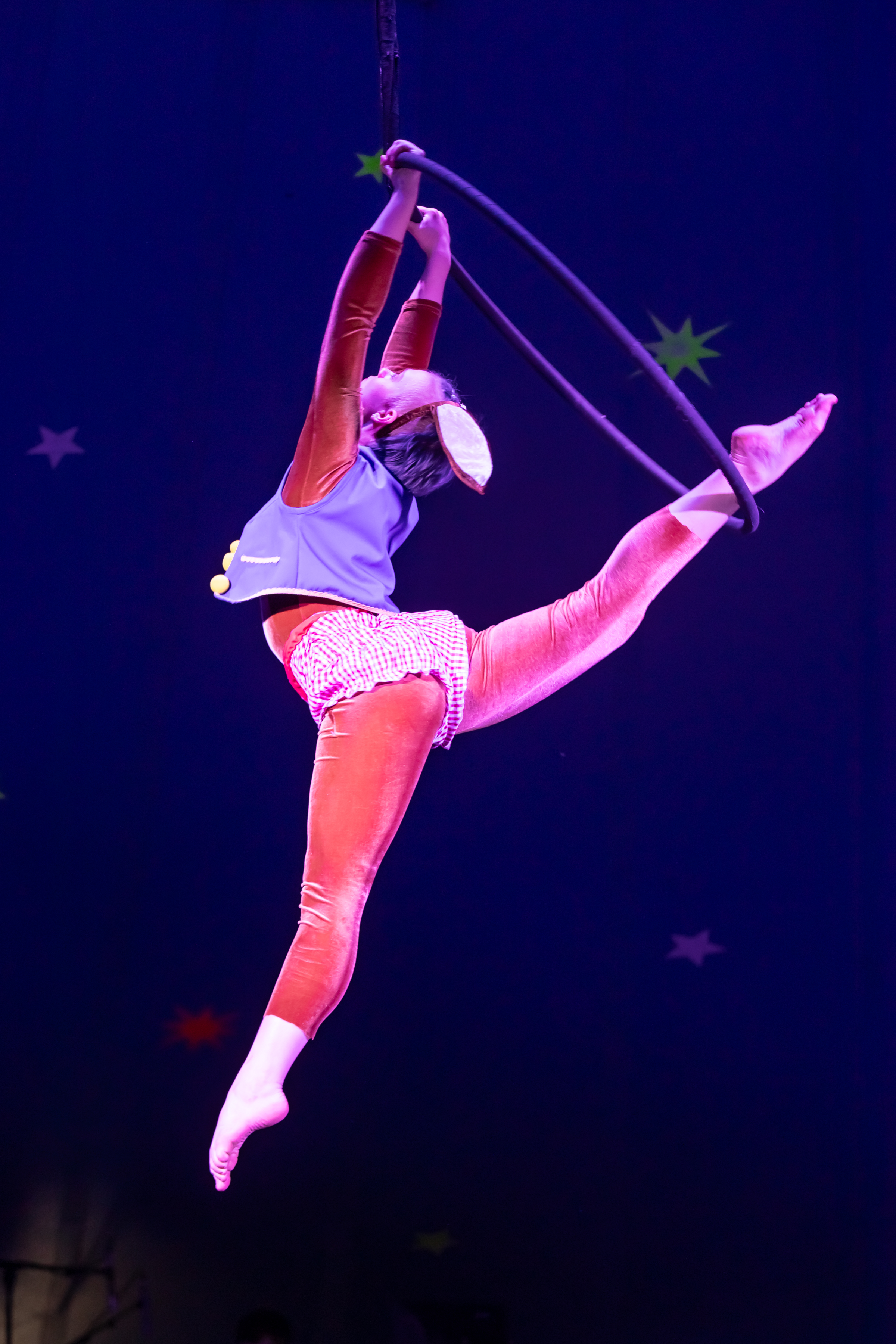
Circus Smirkus features performers between 10 and 18 years old. Photo by Justin Miel
Circus Smirkus is a traveling advertisement for the new generation of circuses, focused on young, skilled performers who take classes and study things like juggling, acrobatics or unicycling. The days when circuses were known largely for lion tamers and elephant riders are gone. Advertisement
Circus Smirkus was founded in 1987, as an arts and education organization, training performers, offering camps and classes, and putting on family shows. It’s based in Vermont.
The performers are between 10 and 18 years old, and this year’s tour theme is “The Imaginarium,” a magical toy shop that comes to life with performers taking the roles of tumbling teddy bears, high-flying marionettes or a jumpy Jack-in-the-Box.
One of the performers coming to Maine is Cora Williams, 18, of Ithaca, New York, in her third summer season with the circus. She took lessons at a circus school near her home, then studied at a circus school in Montreal.
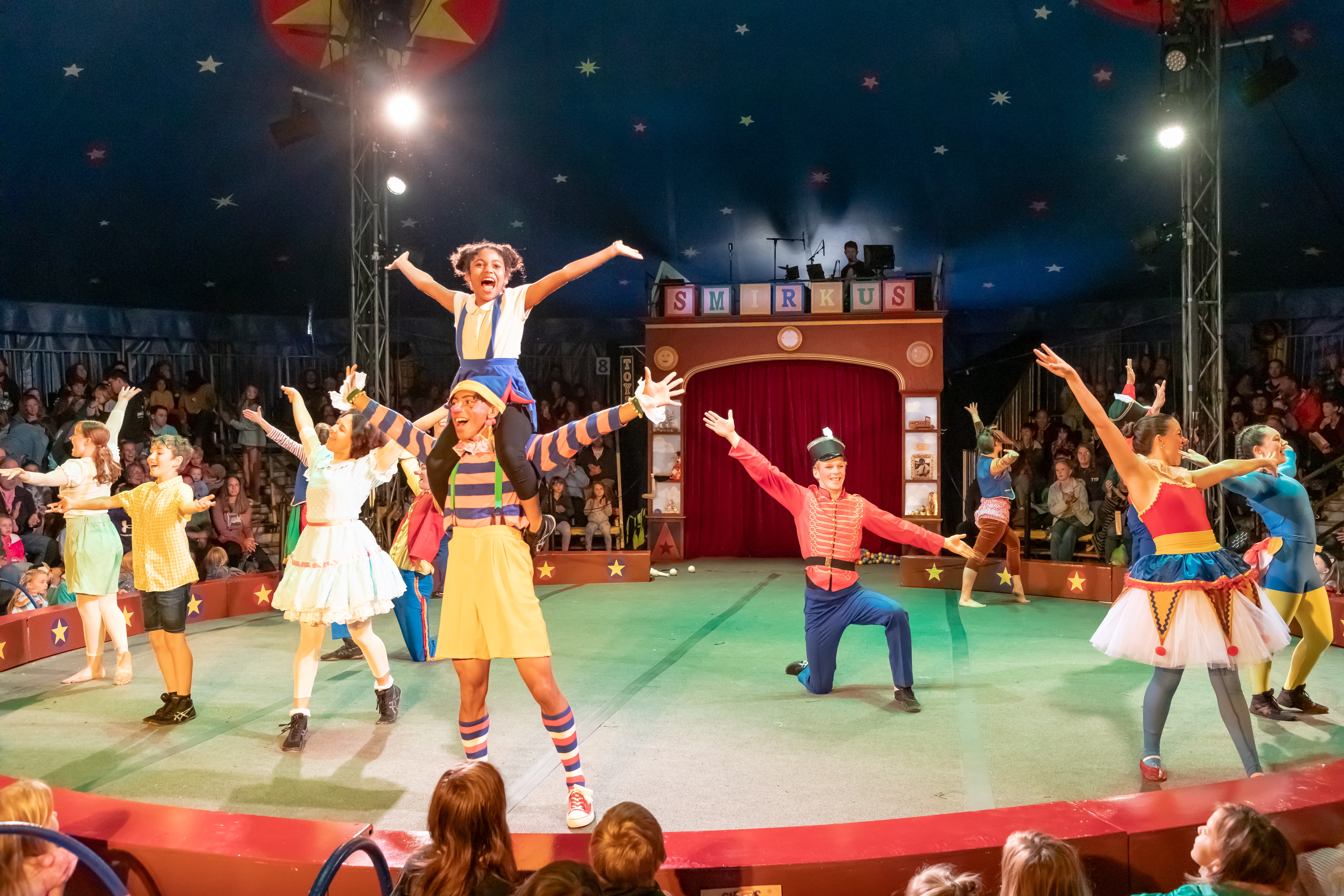
Circus Smirkus, based in Vermont, is a circus for kids by kids. Photo by Justin Miel
She remembers seeing traditional circuses as a kid, including Ringling Bros. and Big Apple Circus. But when she first saw Circus Smirkus, she realized entertaining people under the big top was something she could do sooner, rather than later.
Williams said she loves the fact that when she does a show, she could be inspiring the next generation of circus performers.
“The nice thing is this is a show for kids by kids, but we don’t dumb it down. I love it when the kids (in the audience) come and talk to us,” said Williams. “We have lots of little kids who come up to us. That’s how I got into it. We teach them some tricks, and we get lots of hugs.” Advertisement
Williams says it took her three or four months to learn unicycle tricks. She can do spins and pirouettes and “wheel walking,” where it seems as if the cycle’s one wheel is walking, one step at a time. She’s also an acrobat, standing on others’ shoulders and being flipped and tossed through the air.
Because she’s 18, Williams is “graduating” from Smirkus. She’s excited to be part of a “new generation reimagining what circus is” without animals and without limits. She says that young performers go on to careers using their circus skills in a variety of places and fields, including with touring circuses, as part of cruise ship shows, or in companies that put on shows for businesses.
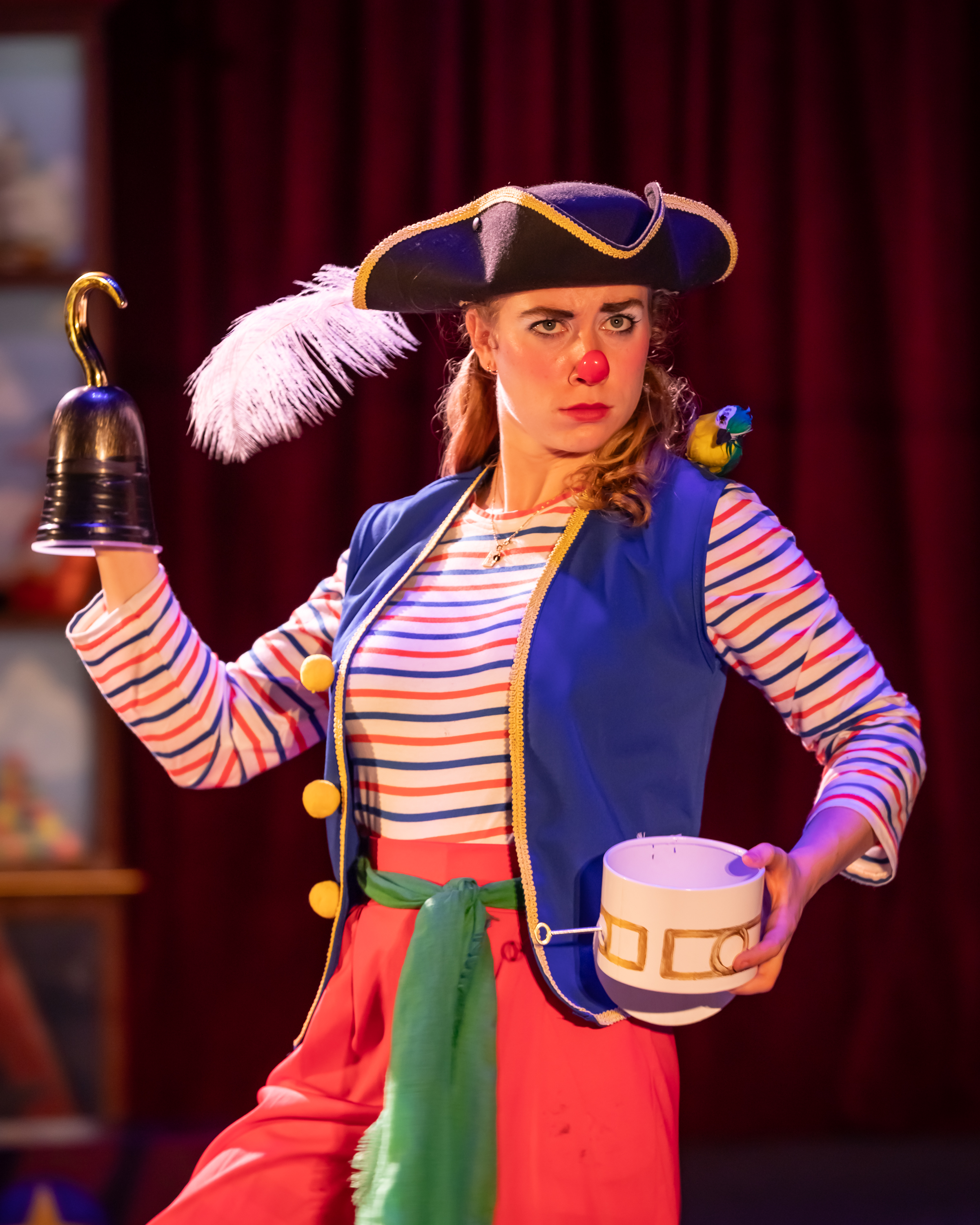
Circus Smirkus is coming to Maine this month. Photo by Justin Miel
Moudachirou said his is one of about five Scarborough families he knows that are going to the show this year. Some went last year, and some heard from others about how engaging the performances are for kids.
He said that, as a parent, he’s glad to see groups like Circus Smirkus and The Gym Dandies offering a fun activity and a chance to learn a skill, besides the traditional offerings of sports or music lessons for kids. He also thinks that from what he’s seen so far at Circus Smirkus, the performers learn more than just juggling or acrobatics.
“For me, as a parent, it was great to see the performers taking ownership of what they were doing. It goes beyond performing; it’s almost about leadership,” Moudachirou said of the show he saw last year. “They were going into the crowd and talking to people, sharing their excitement.”
Modify your screen name
Join the Conversation
Please sign into your Press Herald account to participate in conversations below. If you do not have an account, you can register or subscribe . Questions? Please see our FAQs .
Your commenting screen name has been updated.
Send questions/comments to the editors.
« Previous
Members of Talking Heads, Styx and Foreigner all perform in Maine this week
Next »
My Perfect Day: Baked goods and lobster rolls are must-haves for Portland Chamber Music Festival director
Freeport antiques dealers forced to leave market following Linda Bean’s death
New maine state flag design unveiled, overshadowed in their time, 3 female artists are the focus of exhibitions in maine, bath pastry maker clears obstacles for recent immigrants seeking jobs, 21-year-old man in critical condition after near-drowning in poland, member log in.
Please enter your username and password below. Already a subscriber but don't have one? Click here .
Not a subscriber? Click here to see your options
- AV Undercover
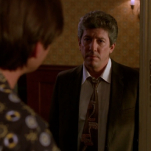
Film Features

- More Film Features

- More Film Lists

- More Film News

- More Film Reviews
- Election 2024
- Entertainment
- Newsletters
- Photography
- AP Buyline Personal Finance
- AP Buyline Shopping
- Press Releases
- Israel-Hamas War
- Russia-Ukraine War
- Global elections
- Asia Pacific
- Latin America
- Middle East
- Delegate Tracker
- AP & Elections
- 2024 Paris Olympic Games
- Auto Racing
- Movie reviews
- Book reviews
- Financial Markets
- Business Highlights
- Financial wellness
- Artificial Intelligence
- Social Media
Paris’ Olympics opening was wacky and wonderful — and upset bishops. Here’s why
Paris Olympics organizers apologized to anyone who was offended by a tableau that evoked Leonardo da Vinci’s “The Last Supper” during the glamorous opening ceremony, but defended the concept behind it Sunday. Da Vinci’s painting depicts the moment when Jesus Christ declared that an apostle would betray him. The scene during Friday’s ceremony featured DJ and producer Barbara Butch — an LGBTQ+ icon — flanked by drag artists and dancers.
Delegations arrive at the Trocadero as spectators watch French singer Philippe Katerine performing on a giant screen, in Paris, during the opening ceremony of the 2024 Summer Olympics, Friday, July 26, 2024 in Paris. (Ludovic Marin/Pool Photo via AP)
- Copy Link copied
Catch up on the latest from Day 10 of the 2024 Paris Olympics:
- Gymnastics: Simone Biles finishes off her return to the Olympics with a silver medal in the women’s floor final. Follow live updates here.
- Boxer backlash: Imane Khelif called for an end to bullying athletes after facing a wave of hateful scrutiny over misconceptions about her gender.
- Keep up : Follow along with our Olympics medal tracker and list of winners. Check out the Olympic schedule of events.
PARIS (AP) — Paris: the Olympic gold medalist of naughtiness.
Revolution ran like a high-voltage wire through the wacky, wonderful and rule-breaking Olympic opening ceremony that the French capital used to astound, bemuse and, at times, poke a finger in the eye of global audiences on Friday night.
That Paris put on the most flamboyant, diversity-celebrating, LGBTQ+-visible of opening ceremonies wasn’t a surprise. Anything less would have seemed a betrayal of the pride the French capital takes in being a home to humanity in all its richness.
But still. Wow. Paris didn’t just push the envelope. It did away with it entirely as it hammered home a message that freedom must know no bounds.
A practically naked singer painted blue made thinly veiled references to his body parts. Blonde-bearded drag queen Piche crawled on all fours to the thumping beat of “Freed From Desire” by singer-songwriter Gala, who has long been a potent voice against homophobia . There were the beginnings of a menage à trois — the door was slammed on the camera before things got really steamy — and the tail end of an intimate embrace between two men who danced away, hugging and holding hands.
“In France, we have the right to love each other, as we want and with who we want. In France, we have the right to believe or to not believe. In France, we have a lot of rights. Voila,” said the audacious show’s artistic director, Thomas Jolly.
Jolly, who is gay, says being bullied as a child for supposedly being effeminate drove home early on how unjust discrimination is.
The amorous vibe and impudence were too much for some.
“Know that it is not France that is speaking but a left-wing minority ready for any provocation,” posted far-right French politician Marion Maréchal, adding a hashtagged “notinmyname.”
Here’s a closer look at how Paris both awed and shocked.
A 21st-century update of Leonardo da Vinci’s ‘Last Supper’
DJ and producer Barbara Butch, an LGBTQ+ icon who calls herself a “love activist,” wore a silver headdress that looked like a halo as she got a party going on a footbridge across the Seine, above parading athletes — including those from countries that criminalize LGBTQ+ people. Drag artists, dancers and others flanked Butch on both sides.
The tableau brought to mind Leonardo da Vinci’s “Last Supper,” which depicts the moment when Jesus Christ declared that an apostle would betray him.
Jolly says that wasn’t his intention. He saw the moment as a celebration of diversity, and the table on which Butch spun her tunes as a tribute to feasting and French gastronomy.
“My wish isn’t to be subversive, nor to mock or to shock,” Jolly said. “Most of all, I wanted to send a message of love, a message of inclusion and not at all to divide.”
Still, critics couldn’t unsee what they saw.
“One of the main performances of the Olympics was an LGBT mockery of a sacred Christian story - the Last Supper - the last supper of Christ. The apostles were portrayed by transvestites,” the spokesperson for Russia’s Foreign Ministry, Maria Zakharova, posted on Telegram.
“Apparently, in Paris they decided that since the Olympic rings are multi-colored, they can turn everything into one big gay parade,” she added.
The French Catholic Church’s conference of bishops deplored what it described as “scenes of derision and mockery of Christianity” and said “our thoughts are with all the Christians from all continents who were hurt by the outrage and provocation of certain scenes.”
LGBTQ+ athletes, though, seemed to have a whale of a time. British diver Tom Daley posted a photo of himself recreating the standout Kate Winslet-Leonardo DiCaprio scene from “Titanic,” only with the roles reversed: He was at the boat’s prow with arms outstretched, as rower Helen Glover held him from behind.
Is that a revolver in your pocket?
When a giant silver dome lifted to reveal singer Philippe Katerine reclining on a crown of fruit and flowers, practically naked and painted blue, audiences who didn’t think he was Papa Smurf may have guessed that he represented Dionysus, the Greek god of wine and ecstasy.
But unless they speak French, they may not have caught the cheekiness of his lyrics.
“Where to hide a revolver when you’re completely naked?” he sang, pointing down to his groin. “I know where you’re thinking. But that’s not a good idea.”
“No more rich and poor when you go back to being naked. Yes,” Katerine continued.
Decades after Brigitte Bardot sang “Naked in the Sun,” this was Paris’ reminder that everyone starts life in their birthday suit, so where’s the shame?
Paris museums are full of paintings that celebrate the human form. Gustave Courbet’s “Origin of the World” hangs in the Musée d’Orsay. The 16th-century “Gabrielle d’Estrées and one of her sisters,” showing one bare-breasted woman pinching the nipple of another, hangs in the Louvre.
France sends a message
Clad in a golden costume, French-Malian pop star Aya Nakamura strode confidently out of the hallowed doors of the Institut de France, a prestigious stronghold of French language, culture and commitment to freedom of thought. Even without a note being sung, the message of diversity, inclusion and Black pride was loud.
The most listened-to French-speaking artist in the world was a target of fierce attacks from extreme-right activists when her name emerged earlier this year as a possible performer at the show. Paris prosecutors opened an investigation of alleged racism targeting the singer.
Nakamura performed with musicians of the French military’s Republican Guard, who danced around her.
Au revoir, closed minds and stuffy traditions.
Off with their head!
When London hosted the Summer Games in 2012, it paid homage to the British monarchy by giving Queen Elizabeth II a starring role in the opening ceremony. Actor Daniel Craig, in character as James Bond, was shown visiting the head of state at Buckingham Palace before the pair appeared to parachute out of a helicopter over the stadium.
The French love to joyfully tease their neighbors across the English Channel and, perhaps not incidentally, took a totally different, utterly irreverent tack.
A freshly guillotined Marie Antoinette, France’s last queen before the French Revolution of 1789, was shown clutching her severed head, singing: “The aristocrats, we’ll hang them.” Then, heavy metal band Gojira tore the Paris evening with screeching electric guitar.
Freedom: Does anyone do it better than the French?
AP journalists Sylvie Corbet in Paris and Jim Heintz in Tallinn, Estonia, contributed.
For more coverage of the Paris Olympics, visit https://apnews.com/hub/2024-paris-olympic-games .
- Share full article
For more audio journalism and storytelling, download New York Times Audio , a new iOS app available for news subscribers.

- Apple Podcasts
- Google Podcasts
An Escalating War in the Middle East
Tensions are on a knife edge after israel carried out a strike on the hezbollah leader allegedly behind an attack in the golan heights..

Hosted by Sabrina Tavernise
Featuring Ben Hubbard
Produced by Rachelle Bonja and Sydney Harper
With Shannon M. Lin and Will Reid
Edited by Lexie Diao and Patricia Willens
Original music by Dan Powell and Sophia Lanman
Engineered by Chris Wood
Listen and follow The Daily Apple Podcasts | Spotify | Amazon Music | YouTube
Warning: This episode contains audio of war.
Over the past few days, the simmering feud between Israel and the Lebanese militia Hezbollah, has reached a critical moment.
Ben Hubbard, the Istanbul bureau chief for The New York Times, explains why the latest tit-for-tat attacks are different and why getting them to stop could be so tough.
On today’s episode

Ben Hubbard , the Istanbul bureau chief for The New York Times.

Background reading
Israel says it killed a Hezbollah commander , Fuad Shukr, in an airstrike near Beirut.
The Israeli military blamed Mr. Shukr for an assault on Saturday that killed 12 children and teenagers in the Israeli-controlled Golan Heights.
There are a lot of ways to listen to The Daily. Here’s how.
We aim to make transcripts available the next workday after an episode’s publication. You can find them at the top of the page.
The Daily is made by Rachel Quester, Lynsea Garrison, Clare Toeniskoetter, Paige Cowett, Michael Simon Johnson, Brad Fisher, Chris Wood, Jessica Cheung, Stella Tan, Alexandra Leigh Young, Lisa Chow, Eric Krupke, Marc Georges, Luke Vander Ploeg, M.J. Davis Lin, Dan Powell, Sydney Harper, Michael Benoist, Liz O. Baylen, Asthaa Chaturvedi, Rachelle Bonja, Diana Nguyen, Marion Lozano, Corey Schreppel, Rob Szypko, Elisheba Ittoop, Mooj Zadie, Patricia Willens, Rowan Niemisto, Jody Becker, Rikki Novetsky, Nina Feldman, Will Reid, Carlos Prieto, Ben Calhoun, Susan Lee, Lexie Diao, Mary Wilson, Alex Stern, Sophia Lanman, Shannon Lin, Diane Wong, Devon Taylor, Alyssa Moxley, Olivia Natt, Daniel Ramirez and Brendan Klinkenberg.
Our theme music is by Jim Brunberg and Ben Landsverk of Wonderly. Special thanks to Sam Dolnick, Paula Szuchman, Lisa Tobin, Larissa Anderson, Julia Simon, Sofia Milan, Mahima Chablani, Elizabeth Davis-Moorer, Jeffrey Miranda, Maddy Masiello, Isabella Anderson, Nina Lassam and Nick Pitman.
Ben Hubbard is the Istanbul bureau chief, covering Turkey and the surrounding region. More about Ben Hubbard
Advertisement

COMMENTS
Advertisement. One of the universal truths explored by "In Bloom" and "My Happy Family" is the extent to which an all-too tight-knit family can stunt one's own personal growth. When Manana is finally freed from her inattentive husband, grown children and judgmental parents, the calming emptiness of her new apartment is intoxicating.
My Happy Family. A middle-aged Georgian woman leaves her husband and their multi-generational home, setting out to build a new life for herself. TOP CRITIC. Georgian writer-director Nana ...
Film Review: 'My Happy Family'. An interesting sociological perspective on a changing patriarchal society. "My Happy Family," the somewhat attenuated second feature from helmers Nana ...
8/10. A gem. renhir 22 July 2020. A very simple story: a woman in her fifties decides to leave her family for no other reason than wanting to be alone.Her children being grown-ups she decides to stop playing the various roles society (through her family) imposes on her: mother, daughter, wife, sister...
Maybe now is their chance for happiness. Critical Movie Critic Rating: 5. Movie Review: Annihilation (2018) Movie Review: A Fantastic Woman (2017) Georgia, journey, marriage, mother, woman. Movie review of My Happy Family (2017) by The Critical Movie Critics | A traditional 52-year-old Georgian woman sets off to live alone from family and husband.
A bit of drunkenness at a. Parents need to know that My Happy Family is a subtitled drama about a multigenerational family living together in Tbilisi, a city in the Eastern European country of Georgia. Such family situations aren't unusual there. At the age of 52, Manana, wife-daughter-mother, at last confronts the impossibility of….
My Happy Family: Directed by Nana Ekvtimishvili, Simon Groß. With Ia Shugliashvili, Merab Ninidze, Berta Khapava, Tsisia Kumsishvili. A woman separates from her family after 52 years in a multi-generational Georgian household to begin her own adventure. To the shock of her relatives, she leaves everything behind to start again.
On the evening of her 52nd birthday, Georgian literature teacher Manana unexpectedly announces to her family that she is leaving. She has been married for 30 years and lives in a three-bedroom flat in Tbilisi with her husband, parents, two children and her son-in-law.The members of her family represent three generations and are completely different from each other: Manana's husband Soso (55 ...
The take. This movie is a dramatic masterpiece and a tribute to loving middle-aged women everywhere. It is unparalleled in the way it portrays its characters and the subtlety with which it tells their stories. The events are centered around a 52-year-old Georgian woman who decides to leave her family home and live alone without much of a notice.
In a patriarchal society, an ordinary Georgian family lives with three generations under one roof. All are shocked when 52-year-old Manana decides to move out from her parents' home and live alone. Without her family and her husband, a journey into the unknown begins.
With "My Happy Family," programmed as part of this year's World Dramatic Competition at Sundance, Nana (the sole screenwriter) and Simon put forth a multi-layered character study, centered on a complex female.
My Happy Family borrows and remixes the social realism and aesthetic formalism of the Dardennes in a way that allows it to exude an energy all its own. Full Review | Original Score: B+ | Feb 17 ...
'My Happy Family': Sundance Review. By Lee Marshall 2017-01-20T18:30:00+00: ... My Happy Family tells the story of a middle-aged wife and mother whose decision to leave her family for an apartment ...
Review: My Happy Family. It casually lays out the domestic space where the story's events takes place with acutely detailed cultural specificity. by Derek Smith. March 8, 2017. Nana Ekvtimishvili and Simon Gross's My Happy Family navigates the aftershocks of a breach of a society's restrictive codes of female conduct when 52-year-old ...
'My Happy Family' Review: A Wife and Mother Escapes Her Trap — Sundance 2017. ... Roger Corman, B-Movie King and Iconoclast Who Launched Major Directors with Low Budgets, Dies at 98.
512 In the Georgian drama film My Happy Family, Manana (Ia Shughliashvili), a middle-aged schoolteacher, decides to move out of the apartment she shares with her parents, her husband, her children, and nearly everyone reacts with varying degrees of scorn and shock.Manana's own reticence to explain her sudden change of heart certainly compounds her family's confusion; as she stoically ...
My Happy Family (Georgian ჩემი ბედნიერი ოჯახი) is a 2017 Georgian drama film directed by Nana Ekvtimishvili and Simon Groß. It was screened in the World Cinema Dramatic Competition section of the 2017 Sundance Film Festival [2] and had its world premiere in the Forum section at the 67th Berlin International ...
In My Happy Family, the stirring and gorgeously naturalistic drama by directors Nana Ekvtimishvili and Simon Groß, a woman discovers just how much chaos a single decision can cause. Manana ( Ia Shugliashvili ) is a school teacher who lives with her husband, her son and daughter, her son-in-law, and her mother and father.
Reminiscent of Romanian New Wave dramas like Cristi Puiu's recent Sieranevada, the ironically titled My Happy Family (Chemi Bednieri Ojakhi) takes a low-key, immersive approach to the travails ...
Should you base your decisions on what you want or what your family wants? We dive into family systems and regaining your individuality.P.S. When we talk abo...
Circus Smirkus was founded in 1987, as an arts and education organization, training performers, offering camps and classes, and putting on family shows. It's based in Vermont.
The 8 best Shudder original movies streaming right now By Richard Newby October 21, 2022 | 2:00pm; Celebrate Christmas with the subversive 1940s rom-com that turned gender roles on their head By ...
PARIS (AP) — Paris: the Olympic gold medalist of naughtiness. Revolution ran like a high-voltage wire through the wacky, wonderful and rule-breaking Olympic opening ceremony that the French capital used to astound, bemuse and, at times, poke a finger in the eye of global audiences on Friday night.. That Paris put on the most flamboyant, diversity-celebrating, LGBTQ+-visible of opening ...
Warning: This episode contains audio of war. Over the past few days, the simmering feud between Israel and the Lebanese militia Hezbollah, has reached a critical moment.